#30 days of takarazuka challenge
Text
30 days of takarazuka pt 5
day 22: a show you wish would get made
yona of the dawn/akatsuki no yona
akayona already has its own stage but won't it be fun if we get to see the dark dragon and the happy hungry bunch in zuka?

day 23: a show you want to see remade
meet again (snow, 1999)
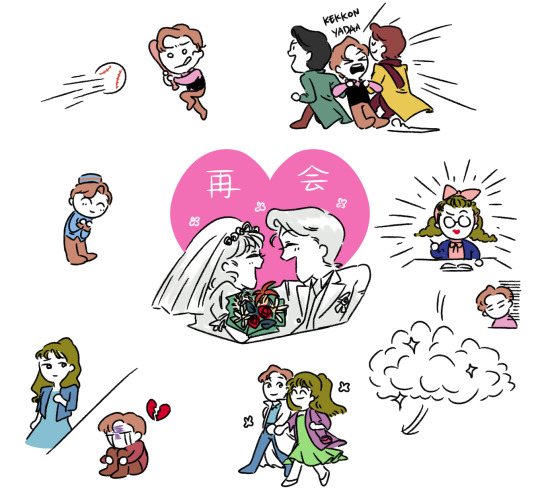
day 24: your favourite song
kaze no shonen from eclair brillant
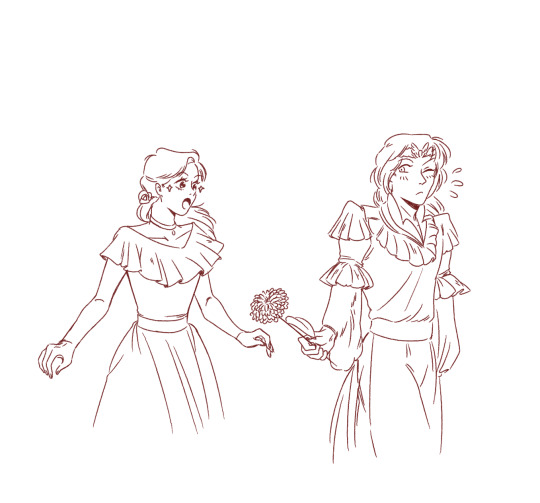
day 25: your favourite dance number
umi no mieru machi, originally a kiki's delivery service ost piece, was rearranged into lowland jazz in super voyager
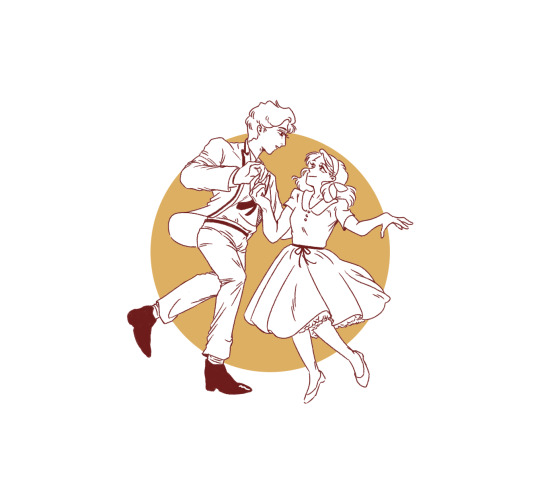
day 26: the show with the best costumes
hands down goes to the fascination tbh

day 27: the best kuroenbi number
exciter!! (flower, 2009)
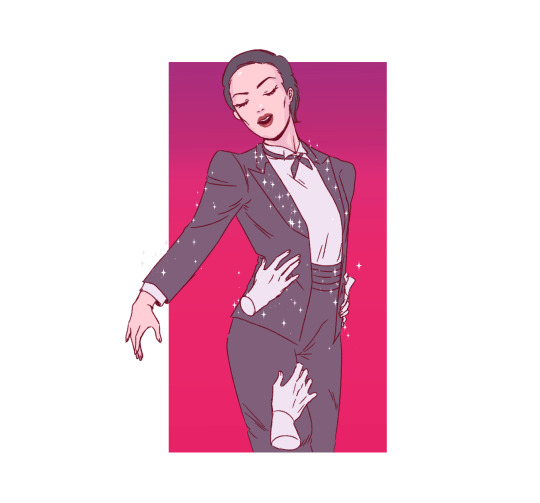
day 28: the best duedan
agaaya's duedan in sweet little rock n roll 2022 means so much to me i could write a 5k words essay about it
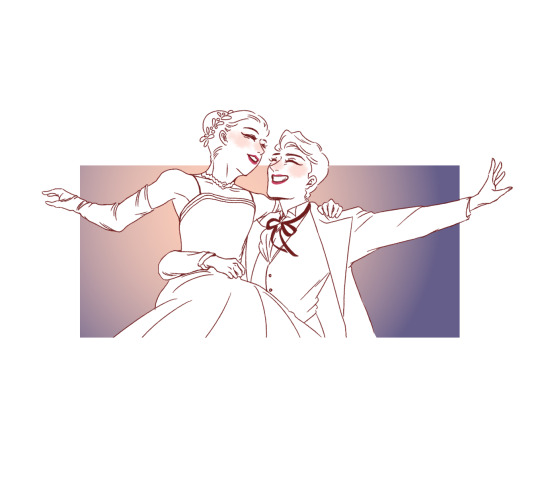
day 29: the show with the best shanshan
the competition is the best shanshan and you're against baddy (moon 2018)
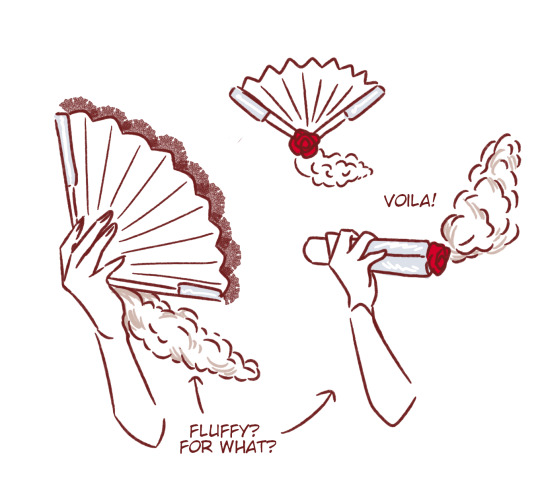
day 30: share what you love about takarazuka
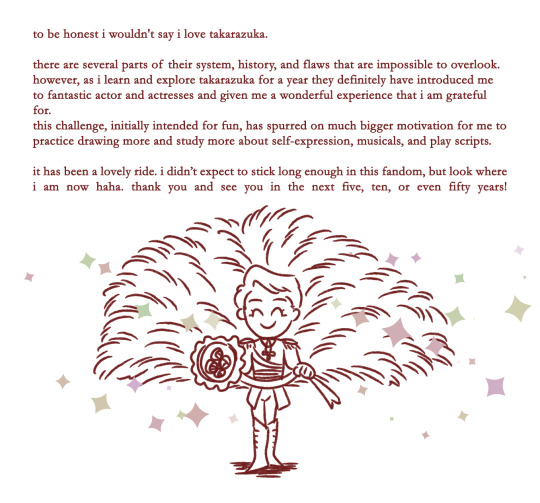
4 notes
·
View notes
Text
Studyblr Intro + Resources
Hi everyone! My name is Jessa, I'm 28 years old and I am self-studying Japanese with the aspiration of reaching N1 from literally zero. I started this blog to keep track of my study progress and enjoy sharing any resources or anecdotes about my daily life!
About my Studies
-self studying Japanese with 0% prior knowledge (unless you count the three words I learned from anime as a teenager)
-passionate about linguistics and linguistic history
-goal is to be fluent enough to be a full time translator and be able to read classical works of Japanese literature (as well as converse)
-consumes 80% only Japanese media to help with immersion (other 20% is cooking shows)
About Me
-has made drinking coffee a personality trait
-loves anything cat like
-favorite colors are purple & dark green
-my cat is named after Leonard Nimoy
-night owl study gal who enjoys staying up until sunrise
-she/her pronouns
-loves making friends but can be slow to reply to messages!
Resources will all be posted under the cut!
N5 Study Plan
These are the current resources I'm using to help me (hopefully) reach N5
Hiragana 10 Day Study Challenge
Katakana 10 Day Study Challenge
Introduction to Kanji
JLPT Grammar List
30 Day Japanese Vocab
Immersion
Sailor Moon Episodes
Japanese Podcasts
Takarazuka Revue
Japanese ASMR
Japanese Pop Songs
#japan#japanese#japanese language#japanese langblr#personal#langblr#studyblr#studying#cats#self study#study#100 days of productivity#learning#hiragana#katakana#n5#jlpt n5#jlpt#introduction#introductory post#over 20#adult student#study inspo#study inspiration#language#language study
14 notes
·
View notes
Photo


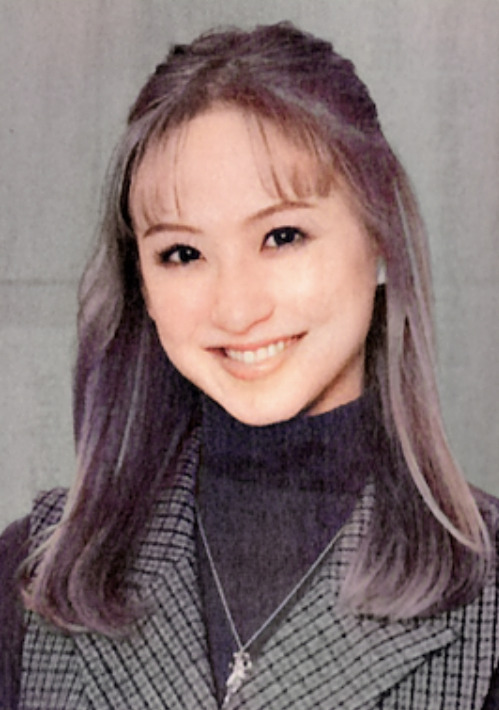
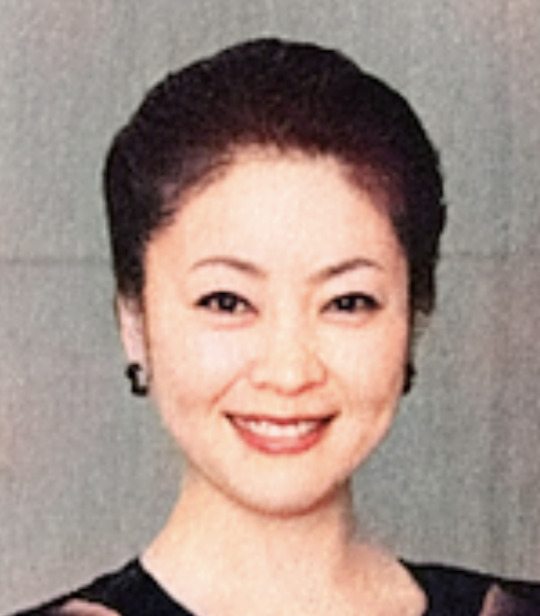


“MAYERLING” Roundtable Discussion
(A “Roundtable Discussion” is a KAGEKI section magazine, documenting the talk between the director and the actresses about their performances. This time, I’ve translated the Roundtable Discussion of the ongoing current production of “MAYERLING”. I hope this discussion will allow you to know more about their insights!)
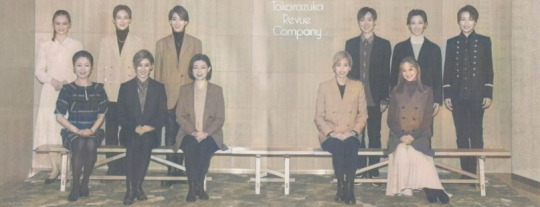
Adaptation/Direction = Koyanagi Naoko
Production = Fujieda Taichi
Actresses = Mikaze Maira, Wataru Hibiki, Minami Maito, Yuzuka Rei, Towaki Sea, Hozumi Mahiro, Hoshikaze Madoka, Seino Asuka, Ichinose Kouki, Hoshizora Misaki
(Discussion below the cut, spoilers may follow)
Fujieda: Starting from January 1 to January 30, 2023, Flower Troupe will be performing the play Musical Romance “MAYERLING” in the Takarazuka Grand Theatre. Script by Shibata Yukihiro-sensei, Adaptation and Direction by Koyanagi Naoko-sensei. Originated from the Claude Anet novel of “MAYERLING”, this performance portrays the tragic love story between the real 19th century Austria Crown Prince Rudolf and the baron’s daughter Marie. The performance was performed many times since its premiere in 1983 and as one of the representative works of Takarazuka, this was a revival after 30 years performing in the Takarazuka Grand Theatre. While trying to bring out the script describing this ephemeral, beautiful and ultimate love unique to Takarazuka Revue and hoping the audience would look forward to this new direction delivered in this 2023 version of “MAYERLING”, everyone from Flower Troupe centred on Yuzuka Rei are altogether, doing their best in rehearsals every day and pursuing the acting they aspire, so please look forward.
Koyanagi: As the producer just mentioned, the premiere of “MAYERLING” was performed by Snow Troupe Asami Rei-san and Haruka Kurara-san in the Takarazuka Grand Theatre. It sparked great discussion at the time, then 10 years later (1993) it was performed by Star Troupe, then after that it was performed again for many times, so for Takarazuka fans, it was one of the representative works they think of when they talk about Takarazuka. It’s been a long while since prologues in grand theatres started on the grand staircase, striking a memorable impression, and the fact that this could be performed in the Grand Theatre after a long while, and the vibe created by the combi of Yuzuka-san and Hoshikaze-san were very suited to this, that is how what brought this rendition in the Grand Theatre. It’s been 40 years since the premiere, and I’ve been able to receive the many scripts used over these years. The foundational thing is hoping to preserve that amazing vibe in the premiere and progressing on with changes that are not drastic. We’re not trying to imitate the past performances, but thinking that it’s essential to create something solidly from this performance, everyone would act their roles as what they are given straightforwardly, taking into account what acting means. I think this is the significance of coming together as one and thinking precisely what we want to create.
Yuzuka: If we talk about Takarazuka, “MAYERLING” is a famous musical like a treasure and I’m nervous but also very happy when I could challenge to perform that in the Grand Theatre. Koyanagi-sensei was really careful to craft the acting and she gave us some lectures about it, teaching her direction one by one, now that I think of it, this process was very fun. When we are to reperform “MAYERLING” again, while holding utmost respect for the performance, I hope to connect myself with the role I’ve received and spend this fun time of pursuing the role.
Conversing with the roles
Challenging this performance with a new approach
Koyanagi: Then let’s talk about the various roles. First we have Yuzuka-san playing as the Austrian Empire Crown Prince Rudolf.
Yuzuka: I first received the role of Rudolf in “Elisabeth – A Rondo of Love and Death” during the role swap cast (LOL). At that time, I already had a profound interest knowing how the Crown Prince Rudolf lived and knowing about his life. Now that I’m able to have a different viewpoint in a different performance to play the same person, it makes me excited. Now, since Koyanagi-sensei was very precisely teaching us about creating our roles, embodying our roles, studying our roles, by doing these one by one, I actually felt that this role of Rudolf seemed more realistic on the surface. I was very happy to be able to do that, and I’m in the phase where I wanted to know more thoroughly about this person Rudolf.
Koyanagi: This time, I wanted everyone to have a little different approach than before to creating their characters, which is not acting from the prior impression they have for their role. Firstly, when they read the script carefully, I want them to focus on how to make this performance persuasive and close to the theme – such as what this person is thinking and what they would say – helping them pursue deeper into the role, but at the current phase, I don’t think they’re in the state yet to confidently say “The role is like this.” Rudolf is a role that everyone already had an impression in mind of being “this kind of person”, but he’s also a someone multifaceted and one that makes you wonder what his true side looks like and a lot of those mysterious parts remains to be solved. That’s why I decided not to stick with just one archetype of the Crown Prince in a tragedy or a dreamer, but I hope to create him as someone that made the final decision because of various kinds of connections contributing to it...He could be as seen as one of the “turmoils” leading to the end of Habsburg history, but I don’t want to delve into why this “turmoil” happened, rather just deliver as how he is. Now Yuzuka-san is having trial-and-error for studying this role. I hope that towards the end, when she stands on the grand staircase for the prologue, she could really bring that role of Rudolf to life as it is. Then how did Madoka-chan (Hoshikaze) think of the role you’re playing as the baron’s daughter Marie Vetsera?
Hoshikaze: There were many performances portraying about the Habsburgs in this country at this time, and they were showcased in different perspectives. Since there were so many sources I could learn from, I tried not to confine myself to a particular image and studied the script word by word deeply. My objective is trying to interpret and living as the role of Marie Vetsera living in this story. This time when I read the script, even in parts where I would not be on stage, I’ve read all the scenes delicately and precisely trying to understand how all the roles would be played out, and with that, I could have a greater understanding for this production and be able to create my role.
Koyanagi: Even though Marie is someone who existed, there’s also the “Marie” as written by Shibata-sensei, so there’s many ways of shaping the role. In present, we think about what kind of existence Marie serves in this performance of “MAYERLING”. Not confining to the presupposed or fixated perception, I hope that you could see a Marie Vetsera in a novel perspective and see a new kind of Hoshikaze Madoka. How did Yuzuka-san and Hoshikaze-san think about Rudolf and Marie at this phase?
Yuzuka: As Ssensei just said, we’re not trying to bound ourselves to the image of the role, we’re trying to bring forth more of the warmth of the roles and create the essence of the roles. Rudolf is really a complicated kind of person and Marie is also quite like that.
Hoshikaze: (LOL)
Yuzuka: Since she’s a fan of the Crown Prince, she didn’t want to leave Vienna where he is from, right? She’s very insistent and strong-willed about that...Even quite stubborn, right?
Hoshikaze: Yes, yes (LOL).
Koyanagi: When I thought the role with Madoka-chan together, we thought that Marie didn’t leave not because she would feel lonely (without Rudolf) but because she was worried for the Crown Prince. “If I’m not here, I wouldn’t know how would he be feeling, that’s why I don’t want to leave” was the reason why.
Yuzuka: That’s also a way of showing that you like a person, right. It was interesting how Sensei described Marie visiting Rudolf as “going to the room of your idol”. Then when they first met, Marie said, “You always seem so lonely to me”...
Koyanagi: At that time, Rudolf was often at the Prater Park and he was popular amongst the Viennese women so many would probably feel that way if they could enter his room. This performance is where you can feel two kinds of charms from Marie – she has that pure feeling of admiration that’s close to liking him, and also that gentleness and inclusivity of wanting him to support him like a Saint Maria kind of figure.
Yuzuka: (facing to Hoshikaze) But the role suits you. You’ve “become friends” with Marie, haven’t you?
Hoshikaze: (LOL) How should I say it, it’s possible to say that it doesn’t feel like too distant imagining about Marie’s situation...
Yuzuka: Yes, yes, in terms of her mentality.
Hoshikaze: Yes, in terms of mentality. Because of that, I want to know more about her feelings, I want to ask some questions to her to understand her more.
Yuzuka: In that sense, we’re not just creating the picture of the misfortunate Crown Prince and that pure, adorable Marie, but I hope to present this human drama as why they chose this path.
Koyanagi: That’s how it is. Then, we have Rudolf’s cousin Johann Salvator played by Minami-san.
Minami: My honest feeling while reading the script was this is a very difficult role. Be it creating it from the inside, and output-wise he’s a role that is a storyteller to the audience from the start introducing Rudolf and Marie, so at first I’d have to convey the words exactly as they are and it feels like returning back to the roots of being as a stage performer. Practising solidly with myself, working on how to project my voice. About the role, I've spoken to Sensei about the biography booklet I wrote for Johann.
Koyanagi: This time, everyone was given the assignment to write a biography booklet of their roles. That’s how everyone can have some discoveries and there’s no right answer so at first you could write about some ways how you could come closer to acting this role. I also benefited from reading these biography booklet.
Minami: When I was talking with Sensei yesterday, I had a new realisation that Johann was quite a complex person in the House of Habsburgs. Since I discovered and felt a lot from the rehearsal classrooms, it feels like conversing with him every day that I can see how he felt and the face he shows to everyone else. I’m trying to create that different part every day.
Koyanagi: As Minami-san said, Johann Salvator is a role of a storyteller so if you don’t concretely express it with words, you’d lose the characteristics of that role and become a machine merely explaining the story without character and emotion. This is a role where it’s difficult to maintain that balance. I think this is a role that you can’t convince even yourself if you don’t create it solidly from the inside. By (enhancing the persuasion in storytelling) is how you can go for trial-and error and go one level deeper. Then how about Mikaze-san who plays as Marie’s wet nurse Jessica?
Mikaze: While writing for the biography booklet, I didn’t write the full name of Jessica. The teacher pointed that out and I realised I wasn’t familiar with this person yet that I’m playing as Jessica...But now I don’t want to be just the role of Jessica but become her. Sensei did say that the movie “MAYERLING” had a strong impression and I tried watching it. Even though there’s no subtitles and I don’t understand the language, it really felt that the conversations amongst the characters were telling me their message. I realised how important it was to consider what the people were thinking at that time. What does Jessica’s presence mean in the House of Vetseras, how do I want the role to turn out are some of the things I think when creating this character.
Koyangi: That actress was really good at it and very convincing. I thought that as if she was really a Hungarian wet nurse (LOL). There are common patterns like “the maiden’s wet nurse” and the “prince’s servant” but I don’t want to have the conception this time. I’m aiming for this “MAYERLING” to be filled with the totality of the production tone and its chicness. On the Takarazuka stage, we want to go for the approach to be as close as making you imagine what kind of people are living in the houses of Vienna in 1888. From that aspect onwards, I feel that’s how we could have that kind of new wet nurse Jessica created. Then, how does Towaki-san feel about playing Rudolf and Johann’s other cousin, Archdue Ferdinand?
Towaki: In this new version of 2023 “MAYERLING”, I was thinking that one thing changed for Ferdinand. You can see Ferdinand is a good guy at a glance but I felt more how he was having these struggles and resisting them. For Rudolf-san, for Johann-san and also for Ferdinand, even though they have many choices and ways of live to decide on, in order to make Rudolf and Marie’s choice of death stand out more, I created my role thinking about the balance and nature of this role.
Koyanagi: In history, Franz Ferdinand was a famous person known for one of the reasons leading to the outbreak of the First World War. At first, I think it’s interesting that this kind of person is included and portrayed in “MAYERLING”. In history, it’s established that he was a resilient person, but this performance portrays a more tender side of his. "MAYERLING” shows both a “Before” and “After” side of Ferdinand, the latter connected a little bit more on his historical side. It was like feeling how Ferdinand was involved in this. With that kind of story, “MAYERLING” becomes a production overlapping with history. Also by portraying the three cousins Rudolf and Johann and Ferdinand together, you can see how they encountered their respective kinds of fate and lives they led.
Yuzuka: This time, there are scenes where the three dance together and when they talk to each other.
Koyanagi: Yes. That’s what I wanted to create more for the three’s relationship, what do you think?
Minami: ... It can’t be explained in a word.
Everyone: (LOL)
Yuzuka: That’s because from the moment they’re born, there’s a complex relationship coming out of it already.
Koyanagi: It’s a boys’ kind of friendship. But also it can't be explained with just that because the three do have some complicated struggles and other problems they’re dealing with.
Yuzuka: But they do get along. From the roots of it they do get along, but with some other external factors, they’ve become a relationship that can’t be explained with just a word.
Koyanagi: But they’re like normal guys that even though you’re childhood friends, you don’t want to lose to each other and sometimes they have things that they’re always so envious of. This time I think the relationship of the three is like: when politics is involved and they are being used, they are there to comfort each other. But the three standing together is very amazing, that alone is a delightful sight for the audience. Then onto Rudolf’s friends. How does Hozumi-san think about your role as Count Hoyos?
Hozumi: I love this period of history of Vienna. For me that’s living in the modern world, I may think that a change in one person’s behaviour must mean great transformations in history. But if people faced obstacles when they’re in chaos, they’d choose to take action, so I want to convince you Hoyos is also that kind of person. Since he really existed, while interpreting the nature of that period of time, I want to solidify the image of the frame we’re trying to form out of this performance. While continuing the rehearsals, it’s not just about where I should look or how I present my actions, but from the inside, firmly creating the role.
Koyanagi: Even though it’s common that there are friends to the protagonist, if you play those roles, the quality of the performance would be better. It’s great to have characters playing along with the prince, good friends that love wine. But it’s also good to discover that that’s not just it, and look into what kind of people they are and what are these people’s motivations. I look forward to what you are to express to the audience. Then, similarly also playing as Rudolf’s friend Prince Philipp, Ichinose Kouki-san.
Ichinose: I was surprised when I knew I would be playing a prince role (LOL). Playing as Yuzuka-san’s friend also makes me happy and excited to create this character. There were actually a lot of sources that remained for reference, and while speaking to Sensei about the biography booklet I wrote, I started understanding Philipp’s background and his resistance to the political system. There's Rudolf when he’s with his friends, and Rudolf when he’s with his cousins/princes. I hope that I could help make such natural contrast possible.
Koyanagi: Since Rudolf is a multi-faceted person, you can see another side in him when there are these two friends. If you think well about it, you may wonder why this complicated Rudolf who’s often anxious with these two bright people together?
Everyone: (LOL).
Koyanagi: Then towards the end, these two are also the people who actually saw Rudolf’s death, perhaps there’s some similarities that Rudolf shares with these two. Even Rudolf’s adjutant (Note = Captain Maurice played by Misora Maru) spoke with the two asking them “Please help His Highness”, from there you can see Rudolf isn’t really alone.
Yuzuka: Since Rudolf is really different when he’s with his cousins and when he’s with his friends, it’s interesting to bring out both kinds of acting, and his character becomes more dimensional. I’m still at the phase where I’m just “looking up to” Rudolf (LOL) and wasn’t able to think about his relationship with other friends yet, so I hope to become even closer to them.
Koyanagi: Then the two serve Rudolf, first we have the servant Loschek played by Loschek, Wataru-san.
Wataru: Loschek-san exists and gives an impression for me of someone with white hair and a comical character. I thought that would be the correct answer but I reflected again later on. Also Loschek-san was only described as “an old servant” and “reticent”, so he doesn’t speak much and there’s no other places I could present him. I’d have to rely on my actions to play him, but now instead of that, I thought about living and embodying the character from the script, therefore the first important thing is to create such a foundation for it.
Koyanagi: Things deemed acceptable change over time and that goes for actors too. Especially for a role like Loschek, I felt that the way of playing the role changes a lot. In that sense, you’d have to go back to ground zero and create it, and it's a difficult but important thing to bring such a memorable character to life. I hope that this character could be created from scratch to appear in the same place, to create a stage that looks different but the story is the same. Then, how does Seino-san feel about playing Rudolf’s carriage driver Bratfisch?
Seino: Bratfisch is Rudolf-san’s personal driver, and why did Rudolf chose Bratfisch to be close to him? It's probably his personality makes him a comfortable presence that Rudolf could allow him close...Even though that’s still my imagination. I want to bring out this charm of Bratfisch so I wanted to “talk more to him” about it. Also, I’ve discovered so much ideas from his lines. How do I make his role convincing from the lines I speak? As Minami-san has just said, I want to cherish my lines and set objectives for myself as I start honing the foundational parts.
Koyanagi: The same as I said for Loschek, playing Bratfisch is also difficult because it is a role that also changes with time (depending on how the actress plays him). Since he’s also someone that existed, he’s someone entertaining the aristocrats by singing and dancing. In other words, he is a Viennese taiko drummer, and I think Shibata-sensei tried to express that character in that way. The existence of taiko drummer itself may become unfamiliar in modern times, but I feel that it is necessary to devise ways to convey it to the present while preserving Bratfisch from how he looked in the premiere (in 1983). Above all, he’s an existence that was at the start and the end of Rudolf and Marie’s relationship, so I hope (Seino-san) could bring that out too. Then lastly, how does Hoshizora-san think of playing as Johann’s lover Milli Stubel?
Hoshizora: At first Koyanagi-sensei said, “If you’re confused you can talk to the character” and that was a very helpful deep reminder in my heart. So every night, I’d think of being in a cafe with Milli in my imagination (LOL). I hope to discover more about this woman. The script mentioned that she’s a civilian dancer that existed in real life. And from there, I tried to relate it to Rudolf’s suicide note wrote, “Thanks to the love and freedom Milli and you showed me.” To think what is this love? Why did Milli like Johann-san? And I’m in the phase where I just want to ask her many questions.
Koyanagi: I’d think that Milli’s presence could be seen together with Johann and Johann’s presence could be seen together contrasted with Rudolf. In Vienna, she existed in history as a ballet dancer, so when her relationship with Johann worked out, that affected Rudolf. As a way of presenting her, I’d say don’t express too forcibly but just accumulate the acting experience as it goes on and it would help enhance persuasion. It looks like you’ve seen the tip of an iceberg but there’s actually the foundation underneath that this role could make this performance more reasonable and persuasive to watch. From Milli’s biography booklet, we could know that Johann and Milli lived together.
Johann: Oh, I didn’t expect we’re going to talk about that here (LOL).
Yuzuka: Didn’t you write about that (in your biography booklet)?
Koyanagi: Yes, she did. (She wrote) “They were allowed to live together.” (LOL)
Minami: (LOL). Since I believe you can discover a lot from Johann and Milli’s impressions from their conversations, I want to only focus on how to make the conversations matter and as Sensei said, don’t try to overdo it. Because Rudolf must be able to see some kind of image in them, from now on we hope to deepen that so that he could see it acutely.
Koyanagi: Acting is all about preparation. Since it only takes one moment to put everything together in place, how should we create those unseen parts on stage leading to the ending? This is also what we try to do precisely this time, so we hope that the audience could look forward to how we’d present to you.
Roles and the nature of what we want to deliver in this performance
Koyanagi: Then finally from Minami-san, Hoshikaze-san and Yuzuka-san let’s hear about your aspirations (for this performance).
Minami: I have respect for the performance and the role and now I’m rehearsing by simply communicating with my role Johann and hoping to play well as him. Even in the rehearsal stage, the prologue is already very glamorous, and I’m also excited. Then when the curtains open on the grand staircase, it's wonderful seeing everyone on the staircase. The fact that we’re inheriting what’s passed down from generations is unfailing, and I hope that now all of us could do that and show you this greatest performance. We will prepare as much as we could as if we’re making the most of our ingredients, rather than adding more flavour into it.
Hoshikaze: As Minami-san said, it’s really an honour to perform yet another era of “MAYERLING” in the Grand Theatre and even now, I’d also imagine how amazing and glamorous it would be to start 2023 like this. I hope to deliver more than my expectations to the audience, so I’ll continue to converse with Marie in this performance. Because there is so much to learn more about her relationship with Rudolf-san and because there are many emotions coming out of this, I’d like to enjoy the rest of the rehearsals from that.
Yuzuka: Even in rehearsals, I still think “MAYERLING” is such a wonderful performance. The story is interesting on its own. The moment you hear the opening theme song, it reverberates in your heart like “It’s starting!” as you feel the power of the harmony, and the echoing of the live orchestra in the Grand Theatre, which is why now I’d look forward to it. With Koyanagi-sensei as the director this time, you can feel from every bit of the stage setting how gloomy the depressing vibes of the House of Habsburgs was, but also conveying that kind of royalty and solemnity. As we just mentioned about delivering a “chic MAYERLING”, the costumes are of high quality and fashionable, giving a touch to the era of the time, so I’m very excited to walk on stage in that ambience. Also personally for me, I’m not the best person at expressing what kind of person a certain character is...I think acting is about a way of presentation showing how a person is, and even though there are parts different from history, I hope Rudolf-san in heaven would think “I didn’t expect you to think so deeply”, so I want to cherish and value this time to learn more about him. While holding respect for him, I hope to create this performance as we all follow Koyanagi-sensei’s instructions and enjoy the fun of acting.
Koyanagi: There may be parts that confuse them since the approach was different than normal, but I could feel that everyone was working positively and having fun so the rehearsal room felt alive. I wasn’t always working as Shibata-sensei’s assisant, but to help everyone converse with their roles, I also asked my sensei how I should do it. Now I'm still unable to answer "why I’m the director this time” (LOL). Shibata-sensei was someone passionate about the completion of a work, and had the love for the siennes, and the enthusiasm to teach them. I thought if I learn from such a mindset, (”MAYERLING”) would turn out to be a good performance. The significance of performing “MAYERLING” this year is aiming not to forget the nature of the performance, and most importantly never stop loving the Takarazuka siennes. So I will remember these two points deeply in my heart so that when the curtain opens Shibata-sensei could say, “You are working hard!”. Everyone, let’s do well altogether.
Everyone: Yes!
#yuzuka rei#hoshikaze madoka#minami maito#flower troupe#takarazuka#takarazuka revue#hibiscustranslation
26 notes
·
View notes
Photo
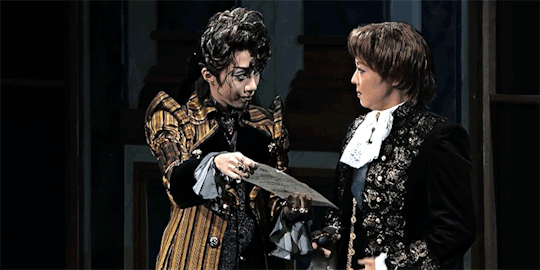
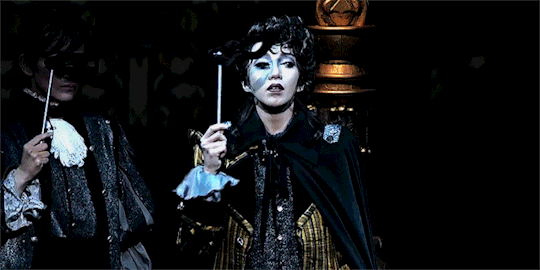
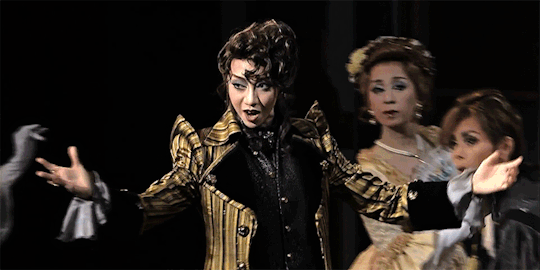
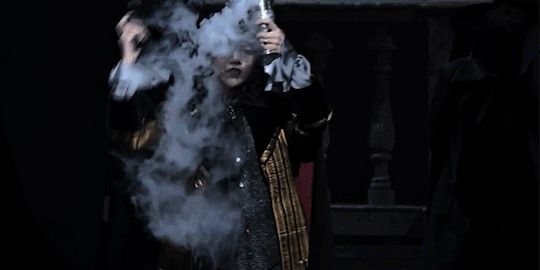
French Musical Challenge [Day 10/30]
Favorite Villain: The Comte d’Artois (Takarazuka)
#miya rurika#1789 les amants de la bastille#fmc#asiantheatrenet#europeanmusicaledit#theatreedit#musicalgifs#frenchmusicaledit#perioddramaedit#ch: artois#takarazuka#takarazuka gifs#moon troupe#production: Takarazuka#actress: miya rurika#tsukigumi
217 notes
·
View notes
Text
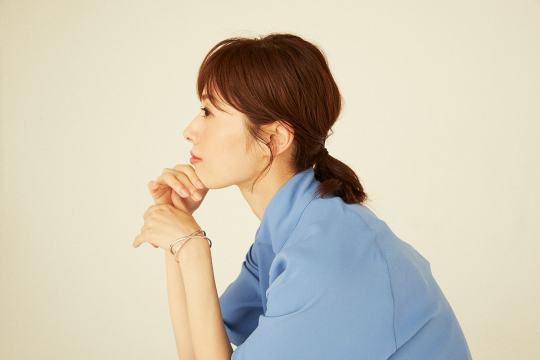
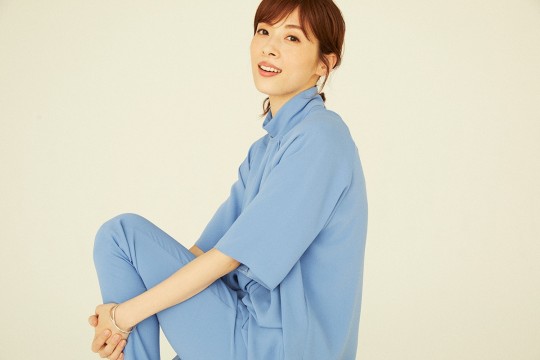
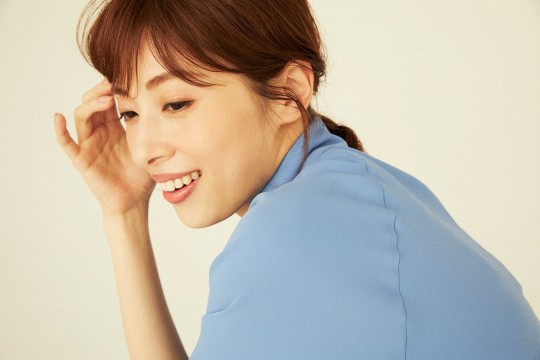
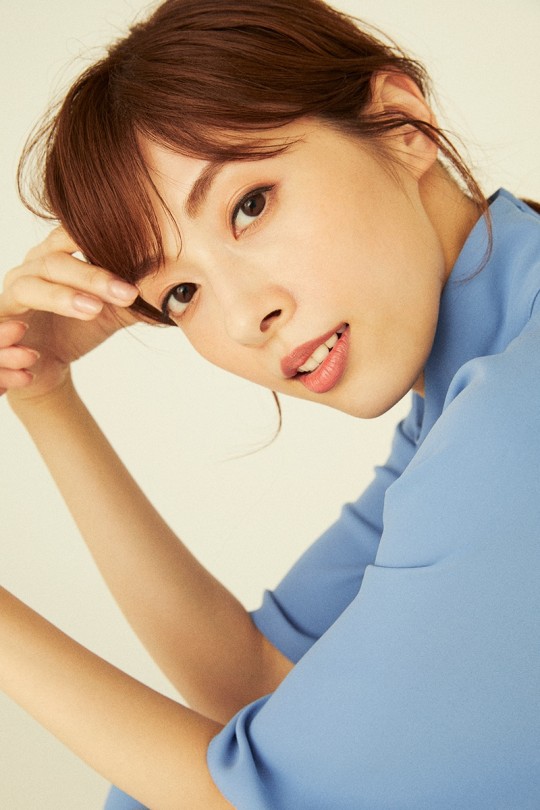

An Interview with Former Takarazuka Top Star Asumi Rio: The Laidback Personality Behind the Handsome Face
(Translated by me 8/19/2021)
While still a member of the Takarazuka Revue, Asumi Rio was known for her sensitive acting which digs deep into the heart of each role, her crystal-clear vocals, and her captivating stage presence. As the top star of Flower Troupe, she gained an immense level of popularity. Now, it has been one year since her retirement from the company. She has expanded her repertoire from stage to screen, and continues to showcase new sides to her talent. In her first name-bearing variety program, the Hulu Original "Asumi Rio's Atelier," Asumi-san learns new tips and techniques to "step up" both her lifestyle and her design sense. Totally different from her intense onstage aura, this program offers a chance to get to know Asumi-san's soft and relaxed offstage persona.
It's been a year and a half since you left the Takarazuka Revue. How would you describe that period of time for you, Asumi-san?
When I was in the Revue, because I had managed to enter the world of Takarazuka, which was my absolute favorite place, I felt strongly that I didn't want to have any regrets. So I was very motivated to work as hard as I could to polish my craft. I was completely lost in it, but within that, I always had my fans cheering me on, and the guidance of so many around me. In the last year and a half, I've realized all over again just how precious a thing that was.
Until I left, my only experience was on the stage, so stepping into the world on screen for the first time, a lot of totally new forms of expression were expected from me, and I felt a lot of anxiety. Parting from Takarazuka and living as just one individual human, every day is full of challenges. But that said, every day now is also rich with new experiences and new possibilities, so I've come to face that with a lot of gratitude.
While you were in Takarazuka, there was a very clear image, that of a perfect "otokoyaku," to aspire to. Now that you don't have that anymore, what kind of actress are you aiming to become?
There are a lot of qualities I have now precisely because I was an otokoyaku, and I think it's probably okay for me to just embrace that. As top [abbrev. "top star", the starring otokoyaku actress in each troupe], I was in a position where I had to lead the troupe, watch over and guide all the other actresses, and shape each production as the lead actress. I think I've picked up a lot of grit through that experience, and even as a woman, I think having a bit of a masculine edge in your lifestyle and how you deal with things can be a positive, right?
Even when I was playing otokoyaku roles, moreso than aiming for a particular ideal, I came at each role separately, like, this time I'm playing this kind of man, next time I'm playing this kind of man. It was like a gradual broadening of my horizons. Now I'm simply adding female roles to that roster, so it's kind of like the scope of roles available to me has doubled. When it comes to my outward appearance, as my hair grows out and I transition toward a more feminine look, I've been having all kinds of new discoveries, like, "Oh, this kind of styling makes me feel like this." Within my drama roles as well, I like those discoveries like, if I do it like this, won't it be interesting, or if I do this, I can get viewers to say, "Oh!" I want to keep digging to find those little moments where I can really surprise people within each role.
Since your retirement from Takarazuka, what overall on-set experience sticks out the most in your memory?
I think that has to be the first show I had the opportunity to take part in, "Ochoyan" [NHK serialized telenovella]. Until I was on that set, I always thought that the stage was the most incredible place in the world. I would never find anywhere else where every member is so unified in their vision, where everyone has so much pride in their troupe and so much love for the production they're building together, as in Takarazuka. Even now, I still think Takarazuka is a very special place, and my love for it hasn't changed.
But on the set of "Ochoyan," like Takarazuka, there were so many staff working to create this thing, who truly loved the work and brought all kinds of skills to the table to bring it to life. Among the cast as well, the atmosphere during recording, where all of us in the Tsurugame Family Theater [the name of the theater company employing main character Takei Chiyo as well as Asumi-san's character Takamine Ruriko] really did feel like a family, wasn't that different from Takarazuka at all. On the contrary, because our time together was limited just to the recording of this show, it felt like everyone valued that time all the more. Being on a set like that was a huge experience for me.
In Takarazuka, you had a very hectic schedule. As soon as one production closed you were already thinking about the next. I'm sure your lifestyle has changed in a big way since then. What kind of feelings do you have about that?
I retired and moved here to Tokyo right around the start of the pandemic. During the lockdown, when I was in my house all day, I realized how long the day really is. Suddenly it was up to me to decide how to spend all this time in the day. I could use it to rest or, if I had some area I was struggling with, I could use it for training too. I had a renewed realization that depending on my own feelings, I could choose to change myself in any number of ways.
These days, how do you find yourself spending the majority of your time?
These days, I'm doing a lot of types of work I'm totally new to, and working on sets with people I've only just met, so I'm still in a place where I spend a lot of time nervous. When I'm on a set I haven't gotten used to yet, my antenna is going in all different directions, so after I get home I try to relax as much as possible. In order to fully refresh myself and go into work the next day in high spirits and ready to face whatever comes, I've been making a conscious effort to be kind to myself.
What activities allow you to refresh your batteries the most?
Zoning out, and eating delicious food.
On "Asumi Rio's Atelier," you gave steaming rice in a donabe [TN: earthenware pot traditionally used to steam rice, supposedly more delicious than steaming in a rice cooker] a try for the first time, but what kinds of things do you eat most often?
As long as it tastes good, I'll happily eat anything. I like vegetables, meat, fish, and I love carbs, too. Ideally, I want to eat a good balance of a lot of different things.
Speaking of that program, how were the topics for each episode decided? Were you able to make requests?
For "Atelier" we had the general framework that I would be trying different activities I was interested in from the onset, so basically they asked me, "What kind of things are you interested in? What do you want to try?" And then...Yeah, first I had about 30, then we added about 30 more, so in total about 60, ideas that we pitched. The program staff wanted to include as many of my requests as they could, so actually, within each episode there are probably three or four different ones. In addition to that, there's an interview in each episode that relates back to that episode's theme. I enjoyed the chance to reflect on my Takarazuka era and memories from my childhood.
On the topic of your Takarazuka era, in your first interview for us, you said, "I wasn't necessarily aiming to become top star." But within the system of Takarazuka, to climb all the way to top star, you must have been aware of something within yourself that made you want to aim higher?
Let's see...Ever since I was an underclassman, I had a strong drive to improve as an otokoyaku. I wanted people to find my performance interesting, and I wanted to be seen as a necessary part of the production. I wanted to act a lot, and I wanted to sing a lot of songs that I love. I wanted to bathe in the spotlight, and I was happy when I got to wear more gorgeous costumes. If I really think back on those feelings now, first in the shinjinkouen junior performances featuring only actresses who have been with the company seven years or less, and then in performances at the smaller Bow Hall theater next to the Takarazuka Grand Theater, inevitably I started aiming for the lead roles that would allow me to stand on stage for the longest every time.
Somewhere along that road, when I was told I was being transferred from the troupe I was first inducted into, Moon Troupe, to Flower Troupe, this feeling that I had wanted to be the Moon Troupe's successor welled to the surface. And since that's the same as saying, "I wanted to be the top star of Moon Troupe," that was the first time I became aware of that goal. Every troupe in Takarazuka has its own character, though, so after my transfer, I was desperate to hurry up and become an otokoyaku befitting Flower Troupe first...
So as you worked to further your artistic development, there at the zenith was top star.
If you were to ask my underclassman self, the Top-sans are unbelievably incredible performers, and the more shinjinkouens you experience, the more closely you come to understanding just how incredible they are. Then as you spend more years with the company and find yourself in a position where you're working directly under the Top-san, you realize how much work they're really doing, and...The more you know, the more you lose the ability to say something like "I want to be the top star" carelessly.
And yet, you bore the heavy responsibility of a top star for five-and-a-half years. It's hard to imagine from your usual laidback attitude, but when it comes to your art, you're incredibly diligent and strong-willed. That gap is captivating.
When it comes to theater, I'm very picky. I mean, I'm way too stubborn for one thing. Especially in productions where I'm playing the lead role, I always have really strong feelings about how I want to perform things, and I'm not in a position where I can hesitate to convey that. It's important to listen to the opinions of various other people too, but when it comes down to it, if I have a clear idea of the direction I want things to proceed and direct things with that in mind, it makes things easier for everyone else, so I always tried to communicate my thoughts clearly and directly. If I'm delivering consistently good work, there's a persuasive power to that. Not only do the underclassmen naturally follow along, but the staff listen and respond to my requests as well.
But when you're making this kind of production, you do have to be pretty strict. But then, the real me is more of a people pleaser. I want everyone to like me, or more like, I don't want to be disliked. I didn't want the younger underclassmen to feel like I was unapproachable or like they couldn't talk to me because I was the top star. I wanted them to think of me like family. So outside matters relating to work, I tried to give off as relaxed a vibe as possible. Definitely, I think there was quite a gap between "on" and "off" for me.
Are there a lot of differences between "Asumi Rio the otokoyaku" and "Asumi Rio the actress?" How about between your stage name persona and your private self under your birth name?
I've lived under my stage name for so much longer than my birth name that I feel like, at this point, the parts of myself that belong to my real name are few and far between. I do have the feeling that, in some respect, I've grown up together with my stage name. In essence, while I was in Takarazuka, I didn't worry too much about creating a separate persona. Thanks to the kindness of my fans and the environment I was in, I felt like I could leave my otokoyaku persona on the stage and stay pretty close to my natural self everywhere else. I guess the only thing is, when I'm alone in my house, I revert to goblin mode. (laughs wryly) Like I'll have trouble getting myself to go take a bath, or I really should clean but my back hurts, etc., etc.
By contrast, now that I've graduated from being an otokoyaku, a lot of the things I'm doing as an actress are total firsts for me, so I think I feel more discomfort with my presentation now than I did then. There are times when I get really nervous, and then I get disappointed in myself for feeling that way. Like, until just a little while ago, I was in a position where I was responsible for keeping everyone's morale up. I would get up on that stage like, "It's alright, just leave it to me," so what am I all anxious for now? I often think about how much I still have to learn, and how badly I want to hurry up and learn it so I can show the results of my efforts.
Is there a particular ideal you're currently pursuing? What kind of actress do you want to become, and what kind of woman?
Since leaving Takarazuka, I've had a lot more opportunity to meet all kinds of new people. On every set I've been on, each of the actresses I meet has their own unique aura, and seeing their acting up close, I'm blown away by each of them. Among the staff as well, there are so many different kinds of professionals of all ages, and I often find myself inspired by their work ethic and lifestyle. I'd like to continue to enrich my life by learning from the amazing people I meet and experiencing many new things, and work to become a more fully rounded human being.
*Bracketed notes not marked "TN" (Translator's Note) were present in the original article.
#mirio#asumi rio#takarazuka og#takarazuka#this interview is super detailed so i've been wanting to translate it for a while#she's such a stubborn person but i kind of admire that about her??#must have been hell to work with at times tho#but such a calming presence offstage lol#hanagumi#tkz#og#mytranslations
59 notes
·
View notes
Text
Rika Kihira x Gutto sports
A while ago Rika appeared in a Japanese tv program. The program was pretty long and unfortunately a full video of it isn’t available at the moment. However the program, cut in 6 parts, was uploaded on drive and translated by @juronom on twitter.
Parts: 1, 2, 3, 4, 5, 6
Translation of the most interesting parts, done by Juro, please do not repost without credit.
Part 1:
Gutto Sport presenters commented that Rika is smaller in height than what her aura gives off. They ask Takeshi Honda and Akiko Suzuki about their shared skating experience with Rika.
T: We skated together at Kandai rink, so I meet her almost every day. I just met her yesterday too.
R: I lost count how many times I greet you already *laugh*
TH: She’s like *comes up to me* “Konnichiwa” (Hello), then skate away, then come back and “Konnichiwa” again.
A questionnaire with Rika on what she thought was her best weapon?
Upper left: Maintain positivity
Lower left: No edge error
Right: 3A (no 1)
The secret of her 3A:
- “The type that hasn’t been seen until now”-Takeshi Honda
- Comparison with legendary 3A by Japanese ladies:
o Midori Ito: height that can be comparable to men’s 3A
o Mao Asada: beautiful air position (vertical jumping posture)
o Rika Kihira: quick rotation, clear-cut (neat, sharp) 3A => allows her landing to be relaxed&free
On what she used as reference for her jumps:
“In the past, I used to refer to male skaters’ method of jumping quads, etc, carefully observe them. Then I always looked at Mao-chan’s amazing 3A as well. Recently, I rely on observation of) my own best condition, how much of the intensity of (practice) it can handle. Something like “When my muscles are at this condition, I should practice increase the intensity of my practice (practice many times).” On the other hand, if on that day, my jumps are off, I’d stop and let my body return (to its good condition) properly.”
Physical check: the secret why Rika can rotate so fast?
According to Prof Sakurai Tomono- researching on the mechanism of athletes’ muscles: her hip and thigh muscles can contract quickly.
Experiment for Rika: measuring the distance of one’s bunny hop from a kneeling position.
Average for boys: 41cm; girls: 20cm
Rika’s distance was 65cm
Part 2
Another secret: Rika is very “obsessed” with her skates (including blades)
She brought the pair she was using at the moment to the set.
Each of Her skating boots, (like other skaters’), is meticulously customized. When the skates first arrived, she had to adjust the blades’ position and angle, how much they lean forward or backward, towards one side or another etc, by herself carefully. She couldn’t say she could adjust them to their perfect condition, but she tried her best to tune them to as convenient a position as possible for her skating, millimeter by millimeter. Not only the position, but the gap between boots and blades are also controlled. Even if the gap is one 1mm wider or narrower, her skating can be affected greatly, to the extent that she could either do 30 3As in one day or none with the boots.
It takes more than 2 weeks to get used to a new pair.
Presenter asked why she couldn’t keep using the same pair.
It’s because the leather will soften, especially at the area around laces. Rika said when there’re some leather materials coming off around that area, she can’t jump at all. She changed boots around every 3 months, and since the boots take 3 weeks to be produced, she couldn’t change to a new pair immediately, and must notice when the pair in use shows some signs of softening.
The presenters need to stop Rika before she talks forever about her skating boots-her obsession.
Rika: “And then, recently, this part…”
Everyone laughs: “She honestly can stop”
Questionnaire with Rika:
What does Rika have on her mind: 100% figure skating.
Takeshi Honda’s question: “Rika, is that really ok?”
It’s about her socks.
Skaters generally stick certain types of specially made socks produced by 1 brand when competing, but Rika is ok with any types of socks and doesn’t mind if her socks are ankle-length or longer. She just grabbed a random pair if she forgot her socks. (t/n: she’s actually using the kind of cute socks sold at tutu-ana (1000yen for 3 pairs) or gift shops lollll)
Akiko Suzuki’s question:
Akiko noticed that at ice shows, before eating, Rika always quickly takes photo before eating, but not in the manner suitable for posting food photos on SNS. Akiko thinks she did it to calculate nutrition value.
Rika: “After a day, I calculate my total calories intake. Combini food has calories value on them, but I don’t know the values for every separate item, so I took photos of everything, then calculate the amount later”.
Presenter: Is it hard to maintain (athletic) body form?
Rika: “Yes, I try as hard as I can. Even if I lose weight (or gain weight). If I lose too much weight, I can’t jump.”
Presenter: As a 17-year-old girl, you may want to eat things like sweets, drink tapioca tea etc…?
Rika: “Well technically I can, but when I eat things like cake or tapioca, which still adds to the amount of calories intake, meat, or such is still important, so I need to eat food that can be converted into energy correctly. If I eat cake or tapioca, my diet’s efficiency will be tampered with.”
Presenter: You can’t even after winning?
Rika: “But still, I still eat the food that can be converted to energy…”
Presenter: “Pizza and cola?”
Rika: *shake her head vigorously*
“If I sleep with an unfilled stomach, I feel like my muscles aren’t there. There are times when I was thinking about whether to get dinner or not, or just only eat the meat properly (not carbs), and then I felt like my muscles decrease, so I concluded that I must properly eat dinner anyways.”
Part 3
Coach Hamada rating Rika:
“She is very disciplined. Her practice ability is very good, and she always has the drive to improve herself. Not in a reckless but proper way.”
Scoring (from upper left going right)
- Comprehensiveness (4)
- Linguistic ability (2): “I wish she could handle English questions in interview sessions or press-conferences. Since she is competing internationally, it’d be nice if her linguistic ability could be improved. Also, she may have more and more international friends, and international fans.”
- Performing ability (4)
- Decisiveness (4)
- Athleticism (5)
- Narcissist power(3) (t/n: lol what =)) but sorry it wasn’t mentioned at all)
- Talkativeness (2): “She doesn’t talk much. I’ve never heard her jokes”
- Humor (2)
- Girliness(4): “She has good sense of fashion, how to coordinate clothes.”
- Considerateness (4): “At ice shows, she always immediately wears and takes photos with all the presents from fans. She wants to send her gratitude to fans, and tell everyone she is really happy with the gifts, which she can’t do often.”
Rika: “Yes, I’m bad (at English). There are many times I want to tell (international fans) “I’m very happy that you support me”, but I don’t know how to. So I just *raise both hands and wave nervously while saying “hai (yes)” and nodding*”
Figure skating’s This and That – presented by Satoko Miyahara.
Top 3 Figure skating truths by Satoko
1. I’m very embarrassed when messing up the stsq.
2. I fight time difference (jet lag) every day.
3. I only forget important things. (Satoko’s story about losing her Olympics ID)
On practicing with Satoko:
Rika: “I practice with her almost every day.”
Presenter: So do you talk?
Rika: “Yes, but for things irrelevant to skating. Satoko normally said things like “I forgot my CD >_<”. Satoko-chan is really interesting”
Figure skating truths by Rika
1. What does she think throughout a 4-min performance?
“There’re many things I think about. For instance: “The axel is coming up next”; “It’s bad if I overdo this part”; “I can’t miss this axel”; “If I made mistake on this jump, all the jumps I landed until now will become meaningless”.
Asked about whether she had entered a “zone”, where she wasn’t thinking anything but everything went well.
“In the past, that happened to me a lot too, but recently, sometimes I don’t think when performing, and there’s excitement too. However, when looking at and understand the real event happening, and thinking that “I don’t want to repeat the mistakes I’ve made until now” …then (that thought) appears in front of me, and in my head, then I’d think that “I don’t want to this (repeat the mistake)” and reconfirm the jumps. When I jump, it’s unconscious reflex, but I think about my surrounding, my own conditions or even my nervousness.”
Presenter: It’s the positive feelings of being able to see everything.
Rika: “Yes, it’s like that”.
Part 4
Choreography challenge with Ryouga Haruhi (t/n: Ryouga is known for playing male role in Takarazuka Revenue, a Japanese all-female musical theater troupe)
The program discussed the role of expression.
Presenter asked Rika what she does as supplement to her expression in figure skating.
Rika: “I do classical ballet around 2-3 hours/week, and I also go to dance school”
Presenter: Dance school? Like rock dance and hiphop?
Rika: “Yes, things like hiphop.”
*show vid of her practicing dance in the US *
Rika: “This is the dance lesson I had in the US, but normally, I have dance lessons that use more hip-hop-like music and more strong movements.”
Everyone complimented on her (and Satoko’s) beautiful movement.
Rika wanted to ask Ryoga about the way she and Takarazuka actresses use their expression, how they pose, and the angle of their faces.
Ryoga explained that expressions showed of male and female roles are opposite: soft and flexible vs cool, then she proceeded to give “posing” lesson. She showed the movement patterns of: female role, lower-class male role and upper-class male role.
Rika was asked to do the movement of “lower-class man” then “upper-class man” (the one with hand on her face) and she managed very well, receiving compliments from the presenters.
Part 5
About the Nobeyama Kougen training camp, known as the place where “Golden-eggs” of Japan figure skating are assembled. Notable alumni: Mao Asada, Yuzuru Hanyu, Takeshi Honda, Shizuka Arakawa, Rika Kihira.
The training camp is 4 days long, with various training sessions from 8am-9.30pm. The camp’s purpose is to evaluate and search for skaters with potential and to check their living attitude as well, like how they conform to curfews, etc. Rika went to the camp 3 years ago, and she said it was very tough.
Rika: “(Being there), you have to worry about whether you will be seeded or if you will be assigned to any competition, and then there’ll be new comers…so in every aspect, you have no way but show you are the best one. Even off-ice physical checking is so tough, squatting/ running around etc, that on the next day, I can’t even move my legs or climb the stairs, but still have to perform programs.”
Presenter: Do you want to go back?
Rika: “Maybe”
Akiko said being there makes you realize she was hand-picked from among all skating children in Japan. That really changes her working attitude and elevates her determination.
Video about legendary 3A by Midori Ito, done 1 minute before the end of her program at 1992 Olympics. The 3A has become the trail-blazer for future generations.
Rika: “I don’t think I can do 3A in the latter half at all. It’s already so tough to have it as the 2nd or 3rd jump but I don’t think I’ve ever tried jumping it 1 minute before the end of the program.”
Part 6
Rika’s impression of Midori Ito: “I experienced challenging 3A but failing in competitions. The first time I met her, she comforted me: “Ahh 3A is very difficult. Though it’s difficult, I really support you”, such kind actions.”
Presenter: But you haven’t got any chance to talk to her leisurely
Rika: “No, I haven’t”
Presenter: Let’s do it now ^^
Rika: “Heeehhh”
Midori Ito appeared: “You’ve worked hard” (to Rika)
“I’m so happy. You even remember the 1st time we met. That makes me so happy.”
Rika: “I do remember”
Midori: “Really?”
“It’s amazing. You can jump it (3A) stably now” to Rika.
Midori said she contemplated whether to do 3Lz or 3A when she was spinning in that program, then decided to do 3A. She asked Rika: “If you made mistake on the 1st 3A, do you think about the 2nd time?”
Rika: ”Well, but I’ve not thought about it in the latter half, really, (3A) in the latter half it’s sugoii…”
Midori’s secret for her super high 3A is to “skate with all her power at top speed”. Because she entered 3A at a very high speed, she can get to that height. She described that method of jumping 3A is like: “Doing long jump (a athletic sport) but rotating at the same time” (t/n: Rika’s face loll)
Rika said she didn’t jump 3A at top speed because she can’t control her axis.
Midori: “However, in my generation, we just focus on doing our jumps at high speed, but in Kihira-san’s generation, the programs have to be beautiful as whole, and in such programs, there is 3A. It’s a generation that (3A) isn’t effective if the programs aren’t beautiful itself. It’s amazing that there are beautiful programs but at the same time allow to do 3A efficiently.” *looks at Rika* Rika is very happy to receive advice from Midori.
Rika: “With this experience, I will try harder and harder every day in order to create a sense of stability. Then, I must perform quads cleanly too.”
Midori’s advice to Rika: “She’s very serious. She is already going forward while staying fixated to her goal. So, *looks at Rika* try to keep yourself in good health. You can’t suddenly jump triples or quads. You can’t say you’ll be free of injury at all, but you have to make compromises with injury and your body conditions. When you’re injured, there’re things you can’t do, so..but then, it’s vital to harmonize things you haven’t done and your techniques. It’ll be nice if you can try to balance those things. I hope that you’ll try your best.”
Rika’s aims: “This season, my first goal is to aim for the podium at the World championship, which I couldn’t do last season. Then, I will make my best effort every day towards my biggest dream of winning the Beijing Olympics.”
32 notes
·
View notes
Photo

Hyper Projection Engeki Haikyuu – The Tokyo Battle
ModelPress Interview Translation
with Nagata Takato
Full interview translation and more photos under the Read More!
Please do not repost my translations.
---------
The next tour will be a new production that illustrates the heated matches of the Tokyo qualifiers for the Spring High national volleyball tournament. It will expand the story by featuring a rival school as the main characters, and for Hyper Projection Engeki Haikyuu, that will be a new venture.
Yes it will. When it was decided, I was really quite happy. Because we were making the fans’ wishes into a reality. There were so many people who said that they wanted us to feature Nekoma’s Tokyo Prefectural qualifier matches on-stage. So we’re really grateful to all the fans.
It seems like it’ll be quite a fresh new play.
There may be people who know Haikyuu who’ll say, “Kenma as the leading role?” One of the great things about Haikyuu is how it really shows the spirit of the sport, and all the passionate feelings that go into participating in that sport, and I’ve always found that really interesting. But even though Kozume Kenma is influenced by Hinata, he’s not that exuberant, so to have a character like him be the lead in Engeki Haikyuu does make me a little nervous.

When you play Kenma, what are the most important things to you in playing his character?
Because we have an original manga to work from, I try to keep in mind the image of his character. Among the Haikyuu characters, he’s the most laid-back, and I think he’s the type to not move very much, but you really can’t be that way on-stage. I have to make him move to some extent, and if I don’t perform that properly, it doesn’t feel complete. But even so I have to make him seem laid-back. I get pretty fussy about that. After that, there are the tosses. Since my position is that of a setter. As much as I can, I try to give meaning to each and every toss.
This is a stage production that has plenty of realism, but before the tour, what types of concerns and struggles are there?
For our team, we prioritize everyone matching our breathing and being in sync. There have been lots of times when only our team stays behind after rehearsals to run through the performance over and over. We practice team parts a lot, because we all think that if we don’t put in the time, then we won’t be any good. In particular, Nekoma High has a persistent, “connecting” defense, that’s our team specialty, so we have a lot of movements where we crawl and roll around on the stage floor. We get a lot of bruises that way, and that sort of feels like we’re back in high school as part of a sports team.
Is it hard on your stamina?
At rehearsals we work hard on our physical strength and endurance. We need at least enough so that we can perform two shows in one day.
In your time playing Kozume Kenma, please tell us something that you’ve learned or a way in which you’ve grown.
Technically speaking, it would be vocals and articulation. He’s a character that’s not very lively, you get the impression that you’re talking to a stick. After that, I’ve definitely grown in my performance.
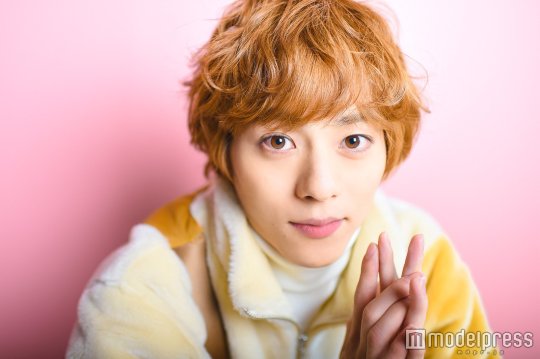
Kenma and the main character, Hinata, both influence each other, and they’re illustrated as pushing each other to get better and excel. Is there someone like that in your life, Nagata-san?
There is. He used to play Kageyama Tobio, it’s Kimura Tatsunari-kun. He has things I don’t, he’s like this all-mighty guy that can do anything, so I always feel like I don’t want to lose to him. In that respect, he’s a rival, but whenever we have days off, he’s the first guy I contact. We talk about useless stuff 80% of the time though. But we can talk seriously if we need to. At first, I got the feeling that he might be hard to deal with, but as I’ve gotten to understand him better we’ve become really good friends. We had a lot of scenes where we were matched against each other, and he always has a really great look in his eyes. We were both setters, and he helped me out with that a lot, so he made me feel like I can’t just lose to him. He’s not really the type to give you advice or anything, but he’s the type to show you how it’s done and lead the way.
That’s a wonderful relationship. Do you have any particular memories of Suga Kenta-san, who’s played Hinata until now?
Whenever Hinata and Kenma have an exchange in that week’s JUMP, my LINE blows up (laughs). He’s like, “Oh my god! Oh my god!” (laughs) To be honest, I really wanted to have the Battle of the Trash Heap at nationals between Karasuno and Nekoma together with him, but Suga-kun finally graduated last year with the fall production. Suga-kun is of course going to be someone that’s always in our minds for everyone on our team and other teams, and for the production as a whole; he was such a skilled and clever person. Because of that, to be the main character after someone like Suga-kun makes me think, can I do this? I do have my worries about it.
Taking over after Suga-san means you have to work hard, doesn’t it!
It does. Although I still want him to come to rehearsals everyday. (laughs)

What are some things you’ve learned while working on Hyper Projection Engeki Haikyuu?
Responsibility; It’s changed how I think about my work as an actor or how I can capture something. It’s not good enough to just act, at Engeki Haikyuu they really take into consideration what the actors think about the staging and any suggestions the actors have. That’s always fun, and it makes me think more about how I can present something. After that, teamwork. Everyone works together to build up this one production, so we have a very strong sense of unity.
Outside of Engeki Haikyuu, your other stage work includes the Tokyo One Piece Tower’s “One Piece Live Attraction” where you played Monkey D. Luffy, “Rock Musical Bleach ~Another World~” where you played Hitsugaya Toushirou... so Nagata-san, you’ve been able to play some pretty popular characters. But there’s quite the difference between your characters.
Well some of that is thanks to the make-up artists and the costume designers... (laughs) There’s a part of me that acts as though I’m possessed by the character. A little bit like middle-school syndrome* (laughs). Maybe because I think it’s important to have that character’s aura.
*中2病 or chuunibyou, refers to a kind of behavior that’s most common in middle school students, where generally he/she acts like a mature know-it-all and/or thinks they have special powers, etc... Although Takato falls back on chuunibyou as an explanation, a western actor might instead call it “method acting.”
In the work you’ve done so far, what’s something that became a turning point in your career or something where your awareness of things might have changed?
Last year in summer, I was in a play called “Takarazuka Boys,” and I feel like I was able to really tap into the depths of acting again with that show. I thought it was fun, but even some of the fun parts were quite difficult. I discovered some new things while working on it.
Speaking of expanding your breadth of experience, you’re currently in a TBS serial drama, “A story I read on the day I first fell in love.” I think you’re in the middle of accumulating a lot of varied experiences, but do you have an actor you aspire to be like, or a goal for yourself?
An actor I admire is Tsutsumi Shin’ichi. I love the drama “Yamato Nadeshiko!” I would love to appear in a romance movie, or a suspense/thriller. I want to play the type of character that makes people go, “So he actually wasn’t the culprit!” (laughs) And then because of playing Kenma I feel like I’ve developed a specialty for playing simple, modest people. I want to play a lot of characters like him too.

I’m looking forward to seeing all those variations of you, Nagata-san. And now, in preparation for Engeki Haikyuu “The Tokyo Battle,” please share with us your thoughts.
I think that this upcoming tour is going to have some things that the other shows haven’t done yet, and it’s going to become a new challenge for us. Of course I’m really looking forward to it, but we’re replacing the main characters from Karasuno and making Nekoma the main, and we don’t know how it’ll turn out, and honestly there are aspects of it that make us nervous. I wonder if I’m fit for the lead, and whether or not I’ll be able to pull everyone together, but this will be a show that’ll cross over into a new era* even, and for myself personally, it will be my 5th Engeki Haikyuu. I have a lot of experience already, and I need to make sure I show that off. I very much want people to come to the theater to see this Engeki Haikyuu featuring Kenma and Nekoma as the leading characters, and see how we take shape on-stage.
*In 2019, the Heisei era will come to an end on April 30th, with the abdication of the current emperor Akihito, and a new era will be named as his son Naruhito ascends to the chrysanthemum throne.
And lastly, Nagata-san please tell us your secrets to making your dreams come true.
I think a lot about the things I want to do. “One day I want to be like this,” is something I think a lot. I’ve made my dream come true of appearing in a TV drama, and after accomplishing that, I start to come up with all kinds of bigger goals, and I want to make each of them come true one by one. Being the lead in Engeki Haikyuu is one more dream that’s come true. This really is a show that exists because of the fans, so I want to do my best on it without forgetting my gratitude to them.
Thank you very much.
===========
Translated by @nimbus-cloud
Please do not repost my translations
If you appreciate the work I do for this blog and want to support my translation efforts, please consider donating a ko-fi! (x)
The original interview can be read online here: (x)
#nagata takato#interview translation#interview#translation#the tokyo battle#modelpress#engeki haikyuu#hq stage#hyper projection engeki haikyuu#haisute#I love this look on Takato tho#so soft
143 notes
·
View notes
Text
Dream Stars’ Salon - Fuji’s Bar w. Ranju Tomu (Flower Troupe)
This Kageki feature from the mid-2000s had directors Fujii Daisuke and Ueda Keiko trading off hosting a ‘bar’ where they would conduct talk features with young otokoyaku stars. The interview between Fujii and Ranju Tomu was published in the February 2006 issue.
Dream Stars’ Salon - Fuji’s Bar w. Ranju Tomu (Flower Troupe)
Fujii: Welcome to ‘Fujii’s Bar’.
Ranju: Thank you for inviting me.
Fujii, Ranju: (laugh)
Fujii: I think the first time I met Tomu (Ranju) was your debut in CAN-CAN, when I was attached to the production as an assistant… You’ve grown up a lot since then.
Ranju: No, I haven’t grown up a bit~ (laughs)
Fujii: Is that so. I think the really cute thing about Tomu is that you’re really bright and friendly, and while you’re mature you can still be a little bit spacey. You’re someone who’s very easy to talk to. You had the ‘otokoyaku’ atmosphere even as a ken-1, didn’t you. I think I remember in Nao-chan’s (Iori Naoka’s) dinner show, you were ken-5, but they introduced you as ken-15… (laughs).
Ranju: I was constantly being used for that punchline in dinner shows and such as a junior actress (laughs).
Fujii: And then recently it feels as if you’re getting younger by the year (laughs).
Ranju: Yes, people say that to me all the time! (laughs) It really makes me think about how hard I was working as a junior actress…
Fujii: Really… Yesterday, I went to see the Flower Troupe performance, and felt like the kindness and big-heartedness I felt from Tomu is something nobody else could express.
Ranju: That makes me so happy~. For my character of Nicola in Palermo in the Setting Sun, that ‘big-heartedness’ was what I most wanted to express, so I’m really happy to hear that.
Fujii: And then in the revue show you had a really natural sexiness. Recently, you’ve come to the point where you can do things without having to push yourself past your limit, right?
Ranju: I’ve had people telling me ‘You’re more relaxed’ or ‘you seem so natural onstage’, so I do feel like I’ve begun pushing myself less onstage, but in a good way…
Fujii: That might be why you’re really standing out recently. By the way, Tomu, did you like Takarazuka ever since you were little?
Tomu: I started watching Takarazuka when I was in middle school.
Fujii: And did you decide ‘I want to join!’ from the start?
Ranju: No, it was when I was thinking of my future path during high school that it started to get to me. I thought ‘I at least want to try out for it’. So then for a year, I took entrance exam prep lessons in secret from my school…
Fujii: But weren’t you taking dance since you were little?
Ranju: When I was in elementary school I took classical ballet for 3 years, and then in middle and high school I was put in the ‘Creative Dance’ department. We had ballet lessons and danced to our own choreography…
Fujii: So, you can do choreography too!
Ranju: That would be a huge challenge, but I would like to try it once, I think.
Fujii: Oh, that would be great! If you hadn’t passed the exam, what path do you think you would have taken?
Ranju: I like English, so I had the vague idea of studying English in college and doing some kind of work related to that.
Fujii: You’re a really flexible person, so I can definitely picture that. Your grades have been excellent ever since you entered Takarazuka, and then you kept getting roles in shinjin kouens and Bow Hall performances, and lots of appearances in dinner shows. Are there any shows for you that were turning points, Tomu?
Ranju: Maybe the 2001 Bow Hall, Manon. That’s when I really started to aim for being an ‘otokoyaku’.
Fujii: Slightly wicked roles, like your character of Lescaut in Manon, really suit you, don’t they. And then that same year you had your first shinjin kouen lead, Michelangelo. What do you think about that?
Ranju: I was so desperate. It was like I was pushing to the limits of my energy, so I don’t really remember the particulars.
Fujii: But I think it’s exactly that which helped you suit the role so well, perhaps. And then the next year was Drenched in the Amber Hued Rain and Cocktail!
Ranju: In the show Director Fujii created and directed, Cocktail, I was able to sing with Haruno-san, Sena-san, and Ayabuki-san in the opening sequence, and then in the basketball scene I was playing the part of Haruno’s opponent, so I was thinking “is it really okay for me to be doing all this…?” It was a revolutionary show for me, internally.
Fujii: Is that so; it seemed perfectly ordinary to me, though (laughs). When all the current Flower Troupe otokoyaku are gathered, they’re so interesting, no matter what you look at.
Ranju: There were so many stellar otokoyaku when I was a junior actress. Maya Miki-san, Kaikyou Hiroki-san, Aika Mire-san, Yabuki Shou-san, Takumi Hibiki-san, Hatsukaze Midori-san, Kizuki Ayumu-san, Ranka Rea-san...And then at the time, Sena-san, Mizu-zan, and Kiriya-san were in Flower Troupe too, and everyone was so cool… I was like ‘what even is this troupe!’ (laughs)
Fujii: (laughs) And was it good training?
Ranju: For example, they would give very clear advice about the best way to wear a tailcoat, and precisely how many centimeters and millimeters until it started to look ‘just a bit off’. Even now, when it comes to how we’re holding a tailcoat, the senior actresses will still suggest ‘so, let’s do it this way this time’ and keep an eye on that. I think they all have a great aesthetic sense of ‘how an otokoyaku should be’.
Fujii: It’s something that’s passed down from senior actresses to the junior actresses. You were ken-7 in Cocktail.
Ranju: Yes. I had a lot of different experiences that year, with Gone with the Wind, Shadow of the Moon, and Elisabeth.
Fujii: How do you feel about singing, Tomu?
Ranju: I’ve studied it for a much shorter time, compared to dance. When I entered the Takarazuka Music School, if I had to use my voice in singing or acting, I never knew what I ought to be doing… In Director Shibata’s acting class he would always call on me as ‘that girl over there, with the strained voice’. I had a complex for a while that made it hard for me to get my voice to come out. Right now it’s not as bad as it was before, but unlike dance, where I can just go with my feelings, I have to think about using my voice more and tell myself ‘I just need to do it how I did in the rehearsals.’ When I hear Osa-san singing, I think that it feels really good, and I want to be able to use my singing to express what’s inside myself that way too…
Fujii: In the shinjin kouen of Elisabeth, it definitely seemed that while your gestures and such were very striking, you were nervous about the singing.
Ranju: Especially in the Takarazuka shinjin kouen I never got over the nervousness… I was in a battle with myself every day until the Tokyo performance. I remember that even right before the performance, I had shut myself in the dressing room baths and was singing. Finally, at the very end, it felt like I had made it over a huge mountain during that performance.
Fujii: That was a good experience for you, wasn’t it. You seemed to be enjoying yourself singing in the recent production of Ernest in Love, so I thought ‘she seems like she’s grown a bit…’
Ranju: Thank you very much.
Fujii: You were playing all sorts of roles in 2005, weren’t you. Hachigorou in Kurawanka was such a skillfully done role that it almost made me think you were ken-30 (laughs).
Ranju: (laughs) Although it was a hard time with the switch roles and things, the junior actresses put so much energy into it, and I think that show really helped everyone in the cast grow.
Fujii: After that you played Gunther in Marakesh: The Crimson Tombstone, and the outside performance R-HATTER*. You were so cool!
Ranju: Although at first I couldn’t even picture how things might end up, but Hattori Yuukichi-san was very understanding of what a ‘Takarazuka otokoyaku’ is, and put together choreography that showed off how the otokoyaku looked.
Fujii: But it was the kind of choreography that you wouldn’t see very often in Takarazuka, right. It needed a very high technical level, didn’t it?
Ranju: Yes. At first I was struggling just to keep up. Performing with foreign male dancers was a very valuable experience for me that really made me rethink ‘the appeal of an otokoyaku.’
Fujii: Although you’ve developed quickly and have the image of a ‘star student’, have you ever had times where you’ve come up against a barrier or that you can’t relax?
Fujii: I’ve never relaxed… Since I haven’t been practicing since I was a child, I feel like if I don’t practice more than everyone else I won’t be able to do it. When I was in the music school, I would dance at home until late at night, and I had my family buy a tap mat so I’d be tapping away at that...I was desperate (laughs).When I was a junior actress I hated being called ‘star student’ and I would break down sometimes. “Even though I’m always at my limit trying to deal with things, why do they still say those things about me…” I would think.
Fujii: I’ve never seen Tomu in a panic like that.
Ranju: I don’t let people see that (laughs). I hate failure, you see. Starting when I was around ken-3, I was able to act in the plays together with the senior actresses, and in the revues even though I was one of the youngest I would be able to join them, but I still couldn’t do things at the level the senior actresses were at… A lot of the time I would end up in the dark, deserted rehearsal room just crying, ‘Wah~’ (laughs)
Fujii: Oh… But you don’t do that any more now?
Ranju: No, if I can’t do things how I think I should be doing them, I’ll have a cry at home (laughs).
Fujii: You don’t want other people to see, yes. So, how are you going to progress from here? Can you tell me roles you want to play, or dances you want to do?
Ranju: In terms of plays, I want to do a really passionate grand romantic story. In terms of dancing, I’d like to do something in latin style, or some really vigorous dancing that they don’t do a lot in Takarazuka. Also, a really Takarazuka-style duet dance… When I was in the music school, in Shime-san’s (Shion Yuu’s) class, she told us “in your loudest voice, shout out your dream of what you want to do onstage”, you know. So, I said “I want to do a duet dance wearing pure white, surrounded by white smoke!” (laughs). I do want to do a charmingly romantic duet dance.
Fujii: So, finally, what do you think is the appeal of ‘Ranju Tomu’?
Ranju: Eh~, do I have to say it myself? I’m blushing… (laughs) Let’s see, first would be ‘Passion’. That’s been my theme ever since I was ken-1.
Fujii: Oh~ that’s great.
Ranju: From now on, I want to develop ‘big-heartedness’ and ‘sweetness’.
Fujii: Wonderful! I think Ranju has the ‘Takarazuka atmosphere’ in the best way, and you’re really irreplaceable. I’m looking forward to seeing how you flourish from now on.
Ranju: Yes. Thank you very much!
* This was a co-ed modern ballet production featuring Japanese and foreign ballet dancers as well as a few Takarazuka actresses.
10 notes
·
View notes
Text
30 days of takarazuka pt 3
day 11: your favourite senka member
miss itsumine aki! other senka members that i like are miss miho keiko and natori rei

day 12: your golden combi
chigimiyu!! T_T <3 the perfect combi in romance, comedy, and tragedy. the stars were perfectly aligned when they were matched as a top combi!! in addition they graduated together on good couple day... aaaaa... love...

day 13: the most recent show you watched
the 2022 restage of never say goodbye
this scene is extremely important to me. waohana ver made me went through existential crisis and makajun ver made me depressed
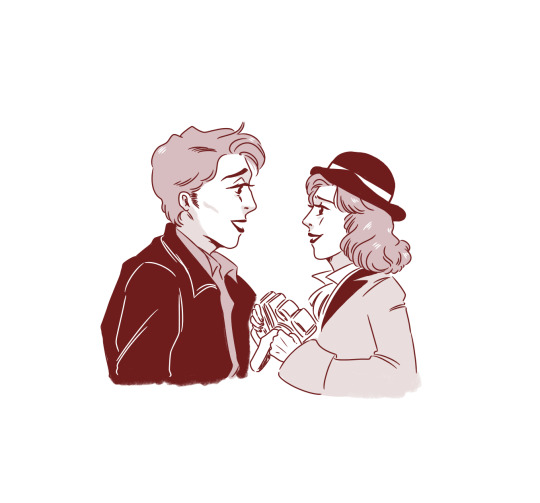
day 15: talk about the sienne i love
amashi juri-chan!

and on may 15th is my actual zukaversary date! <3

funny story lupin actually got me intrigued with daimon, so i decided to get to know her more. she was so stunning and her voice.. her voice absolutely hooked me. little did i know on that day, when i joined the fandom and watched fortississimo, she and kiichan had retired 4 days before LOL
3 notes
·
View notes
Text
30 days of takarazuka pt 2
day 6: your favourite hanagumi show
haikara-san ga tooru
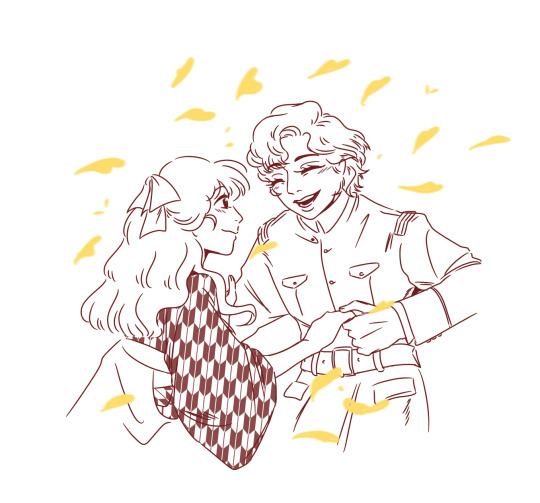
day 7: your favourite tsukigumi show
can-can
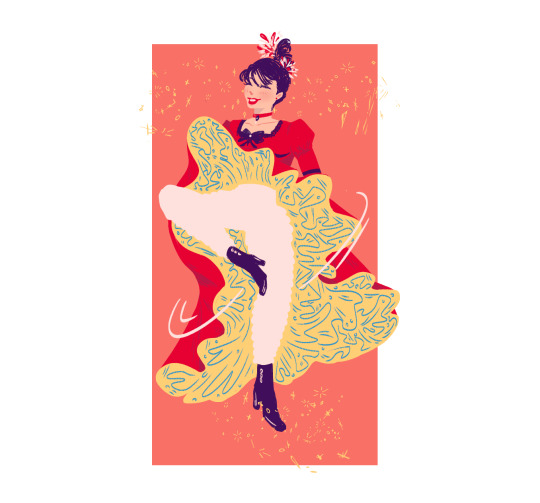
day 8: your favourite yukigumi show
maeda keiji
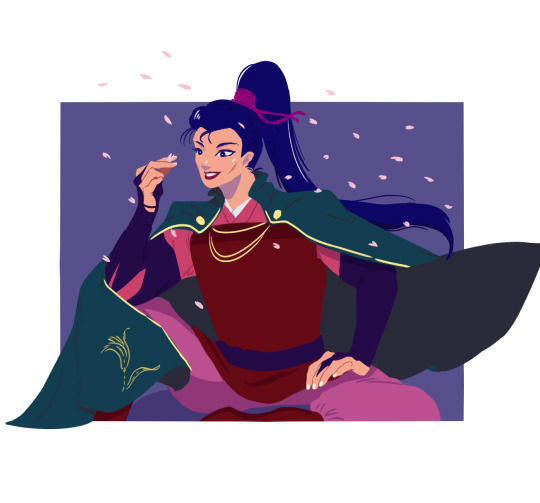
day 9: your favourite hoshigumi show
legend of the midnight sun
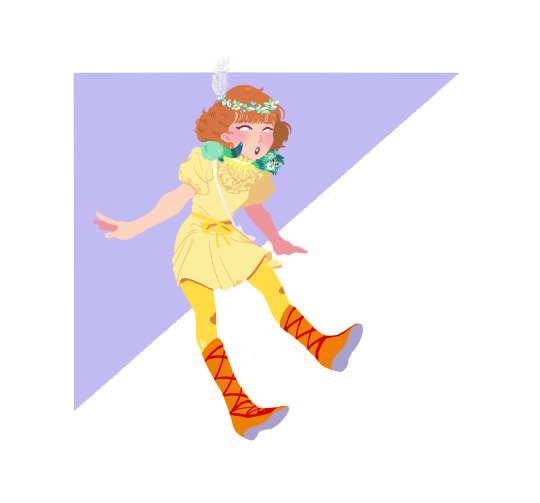
day 10: your favourite soragumi show
hotel stella maris
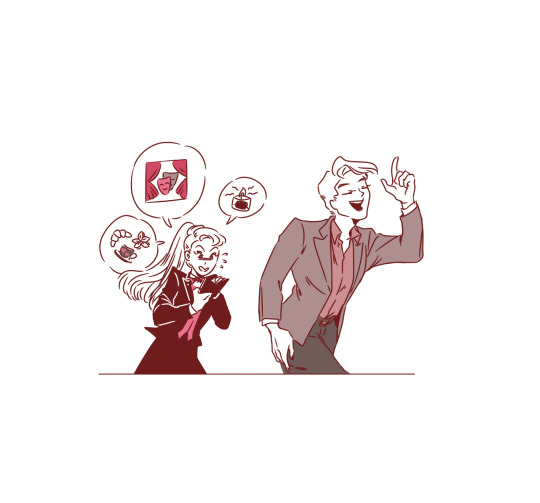
3 notes
·
View notes
Text
30 days of takarazuka pt 1
on may 2022 i celebrated my 1st zukaversary by drawing every doodle according to this prompt. due to tumblr’s limit of picture, i will post them in bulk and about 5 parts!
day 1: the first show you ever watched
lupin iii by yukigumi
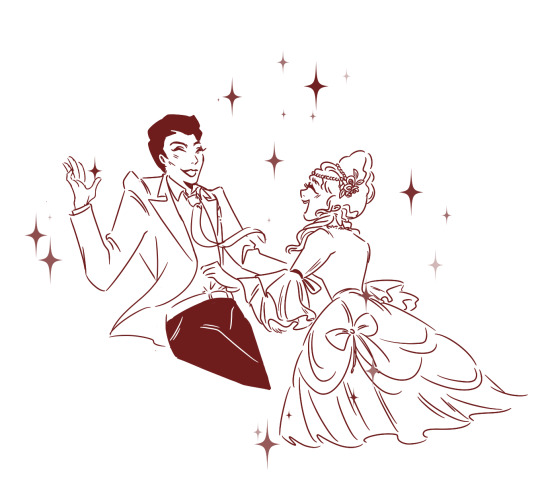
day 2: your favourite troupes
yukigumi and tsukigumi
below are the troupes' respective current top musumeyaku, asazuki kiwa and umino mitsuki i love them so much

day 3: your favourite otokoyaku
houzuki an
honestly i had so much stress choosing one because i have a lot of faves!! then i remember my love for the 92nds.. and chinatsu has been in a lot of my go-to shows when i feel sad

day 4: your favourite musumeyaku
yumeshiro aya-chan!
this question is the most difficult bc i have more fav musumeyakus ahjhdsk she's so cute and her acting mesmerizes me, she has this unique charm that pulls you in to the play's atmosphere!

day 5: your favourite OG
i cheated a little.. my classic problem is i can't choose one >_< and there are other OGs whose retirement hasn't really sunk in.. like rara, risa, yuunami, kari.. maaany many of them T__T

3 notes
·
View notes
Text
30 days of takarazuka pt 4
day 17: the show you watch repeatedly
baddy!
baddy!
BADDY!
we do not need explanation for this iconic show methinks
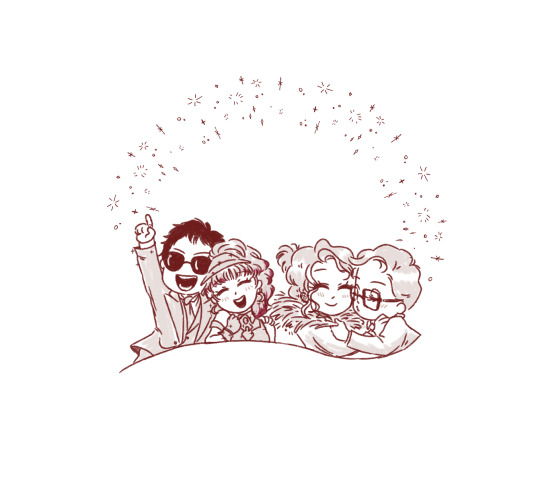
day 18: your favourite nihonmono
hoshiai hitoyo/one night of stars
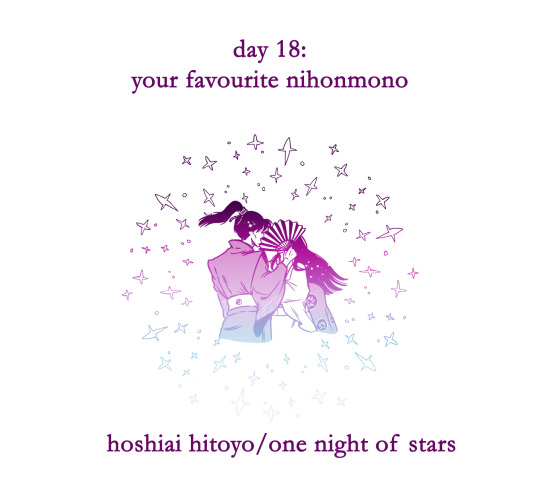
day 19: your favourite revue
delicieux!
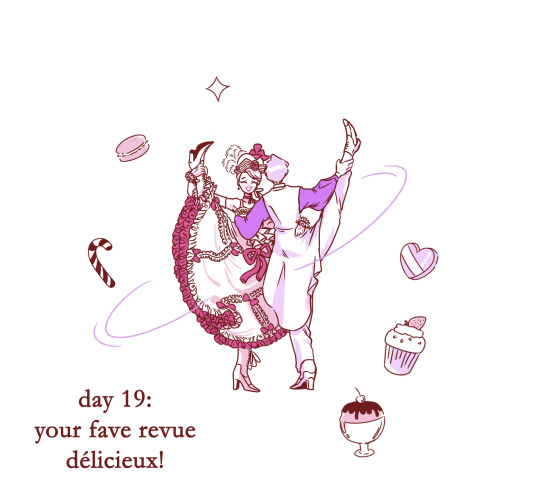
day 20: your favourite foreign adaptation
elisabeth
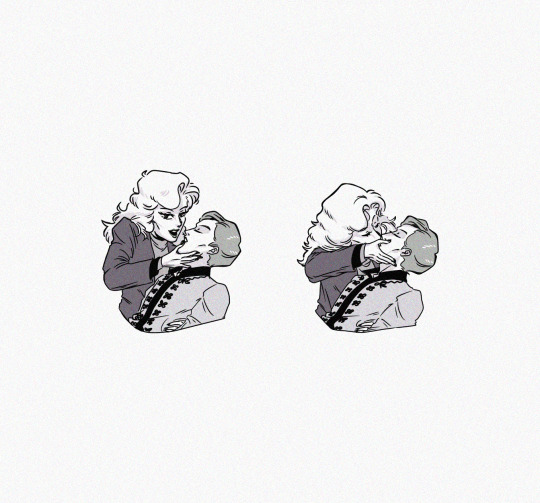
day 21: your favourite small theatre show
immortal thorns
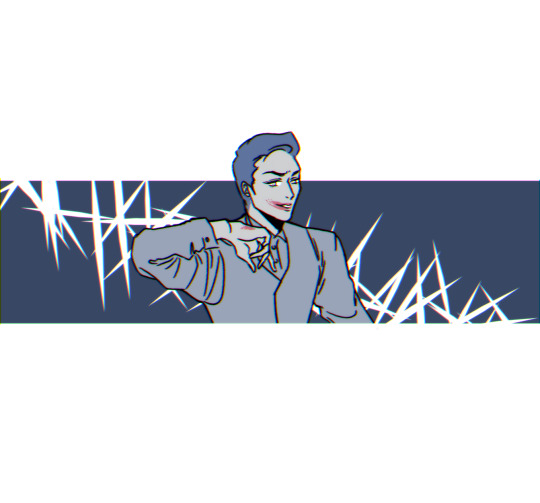
1 note
·
View note
Photo
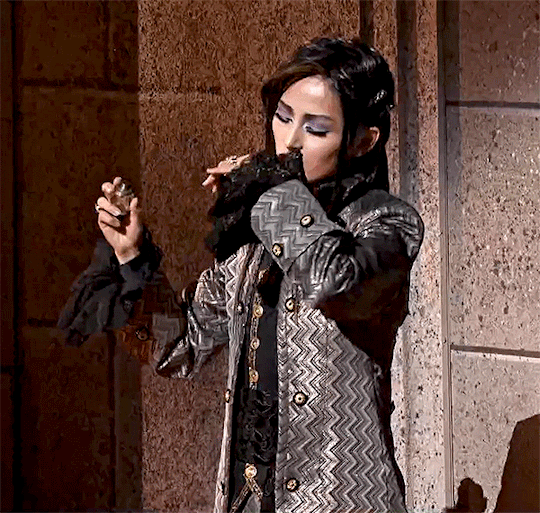
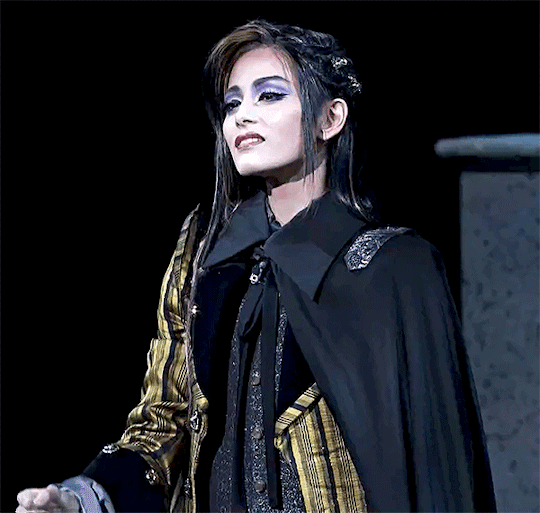
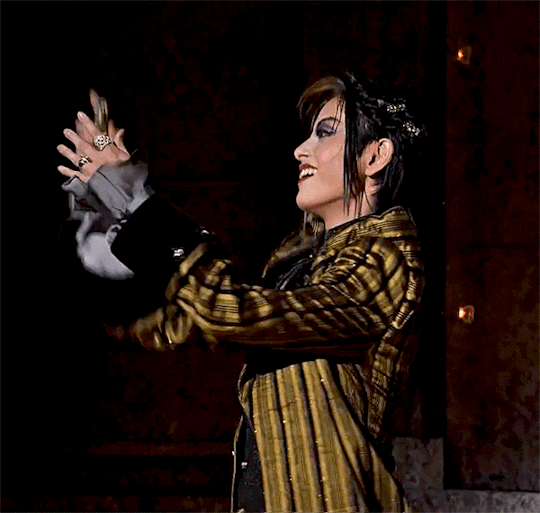
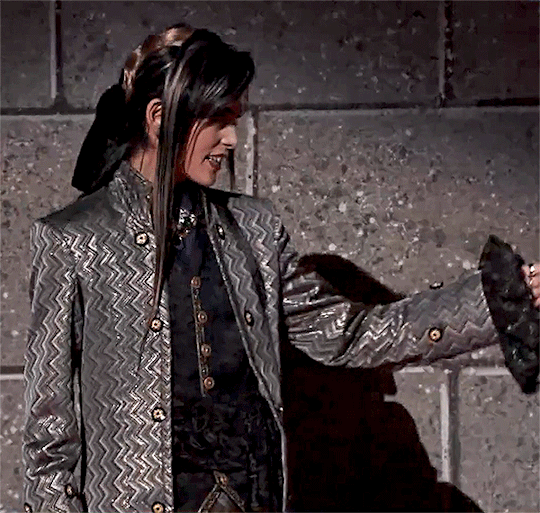
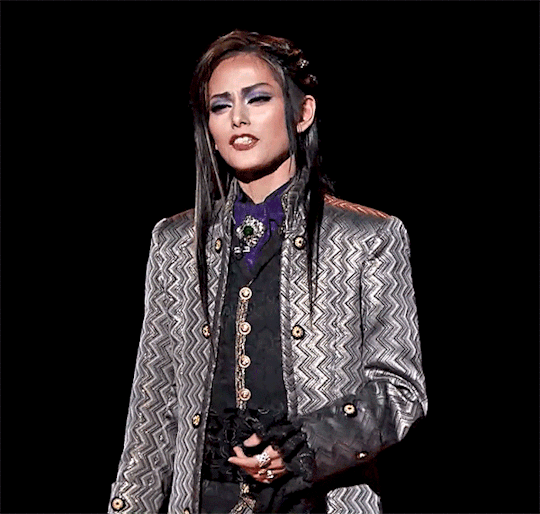
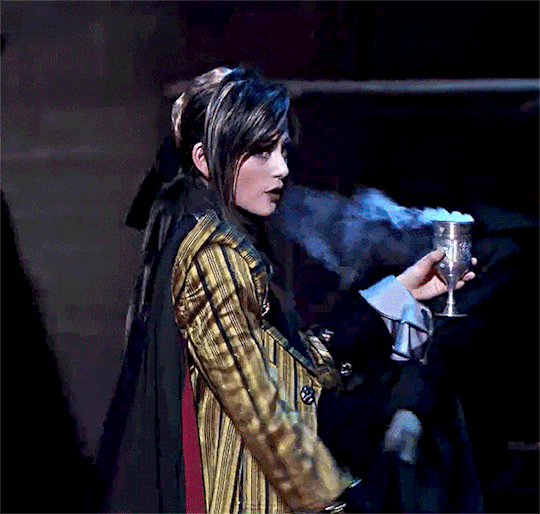
French Musical Challenge [Day 9/30]
Favourite Understudy/Alternate: Asami Jun as the Comte d’Artois (Takarazuka, Shinko cast)
#1789 les amants de la bastille#1789edit#takarazuka#tsukigumi#asami jun#perioddramaedit#fmc#weloveperioddrama#europeanmusicaledit#musicaltheatreedit#theatreedit#musicalgifs#musicaledit#asiantheatrenet#ch: artois#production: takarazuka#actress: Asami Jun
117 notes
·
View notes
Photo
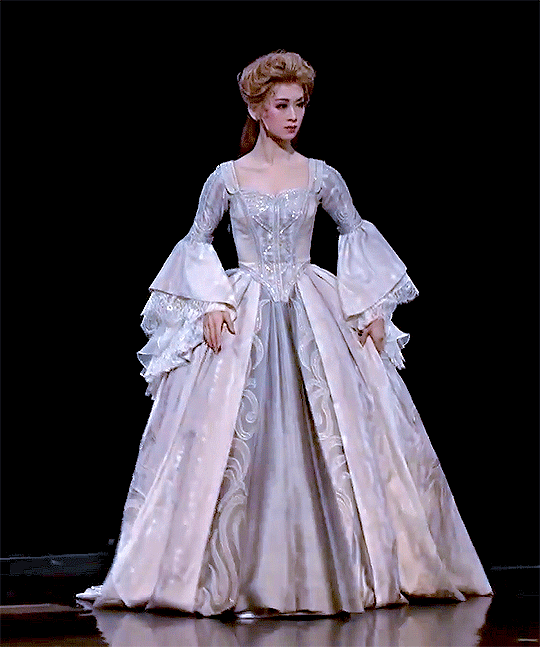
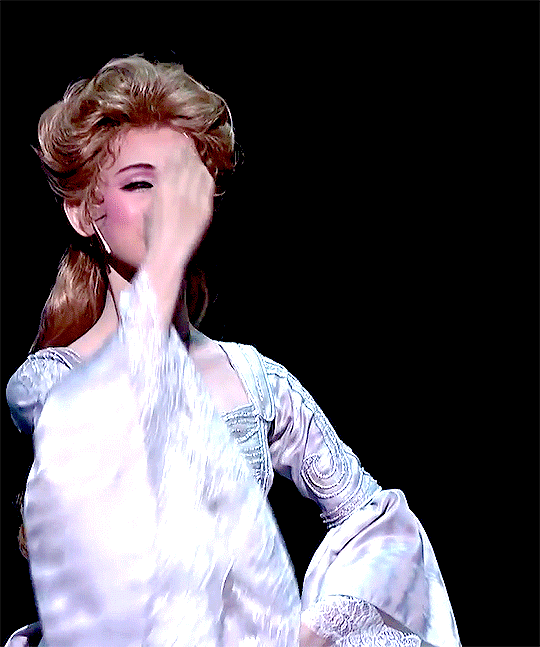
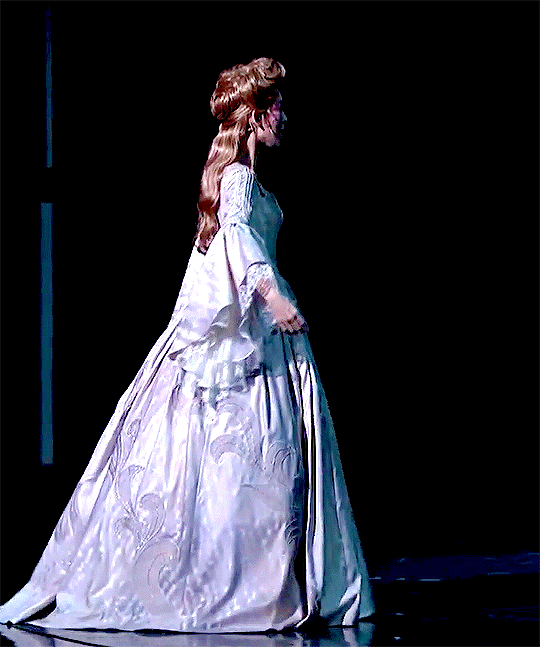
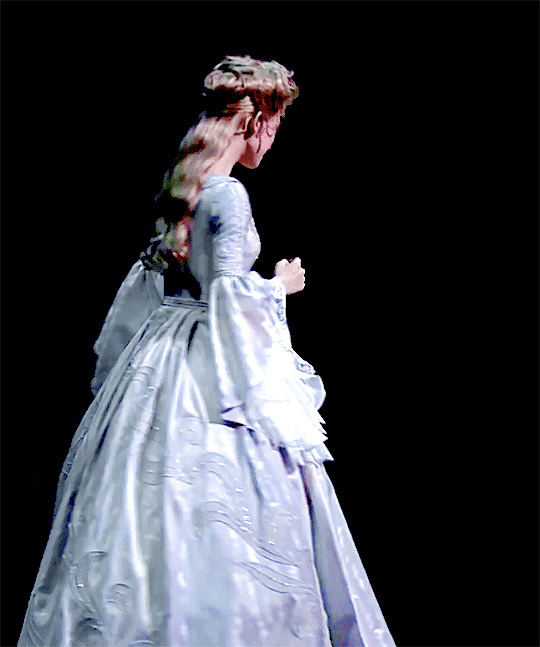
French Musical Challenge [Day 21/30]
Favorite Costume: Marie Antoinette’s silver gown with silver embroidery (Takarazuka)
#1789 les amants de la bastille#marie antoinette#takarazuka#tsukigumi#manaki reika#chapi#asiantheatrenet#musicaltheatreedit#perioddramaedit#theatreedit#frenchmusicalchallenge#frenchmusicaledit#costumeedit#ch: marie antoinette#actress: Manaki Reika#production: Takarazuka#fmc
362 notes
·
View notes
Text
Mori Keaki - 120% Darling: Part 1 Chapter 3 - Red skin of ‘passion’ (!?)
Mori Keaki published this essay book the month before her retirement as Top Star of Snow Troupe. It is mainly a memoir of her personal journey in Takarazuka, as well as her early life. Her writing/formatting style is kind of unique, and I tried to reproduce or reflect it as much as possible. 120% Darling has around 24 chapters, and I plan to post one every Friday.
It’s a really lovely book, that ended up making me cry many times. I hope you enjoy it!
For a table of contents with links to all the chapters, go here.
Red skin of ‘passion’ (!?)
In Takarazuka, besides the Grand Theatre, there is one other performance space called the Bow Hall.
So if you call the Takarazuka Grand Theatre the ‘large hall’.
Bow Hall is a ‘medium (or maybe it’s just small!?) hall’.
It’s a cozy theatre that fits about 500 people.
The performances held in the Bow Hall (let’s just call them ‘Bow performances’) are, as I’m sure you’ve guessed from the size of the theatre, on a smaller scale from the main performances in the Grand Theatre, and therefore the number of students who can appear is somewhere around half the troupe total. The length of the show’s run is also shorter, around 2 weeks.
So for us students, and for the younger directors, these Bow performances are another valuable opportunity to learn besides the junior performances.
Also, since it’s such a small theatre with such short performance runs, it’s possible to put on new, experimental kinds of shows that wouldn’t really work as a Grand Theatre main performance.
You see, since there are only about half the performers as there would be in a main performance, there are more chances for the junior students to have a real role! It’s fun in a rather different way to the Grand Theatre shows, so if you happen to go to Takarazuka, I think you really ought to see a Bow performance too, so please try it!! I really recommend them!!
Just a little advertisement. Ahaha……
I have a lot of memories of Bow performances myself.
But the first really strong impression I have is of a show called Dawn of Lombardia.
It was Ken-3 Mori Keaki’s first Bow Hall appearance!
So for a little baby student like I was this was a really, really delightful thing.
But, wait a moment! Even better, I was given a role!
I would play Ricardo, the leader of a troupe of mercenaries - what a cool role!!
I entered rehearsals full of both nervousness and excitement.
As you’ve seen in the prior examples (!?) Mori Keaki ended up totally taken over by Ricardo and I spent the whole time trying to feel as much like him as I could.
And then the dress rehearsals.
The show opened the next day.
But, on the day of the dress rehearsal, something happened and it turned out that Nanao Tomo, who played the lead, might not be able to go on!
Nanao had injured her knee earlier and it had suddenly gotten much worse. As another stage performer I can understand what she must have been going through, to have a sudden collapse like that: so frustrating, so humiliating, you’d rather perform even if it killed you!! But it hurts so much… So many complicated feelings.
But the opening day of the show wasn’t about to wait.
In case of something like this happening, midway through the rehearsals ‘substitutes’ were supposed to be assigned to all the roles, but…
This time, somehow, who would substitute what had never been properly decided!
So. Suddenly.
Director Masatsuka Haruhiko said.
“You do it!”
To me…
I didn’t have any time to be surprised or confused or shaken, I just had to perform!!
The dress rehearsal started with me playing the lead role, Francois, while holding the script in one hand.
In the dress rehearsal we were all supposed to have the same costumes as in the real performance. However, I had to substitute so suddenly that I just went as I was. Ricardo had a red blouse: I’ll never forget that.
So I was wearing that and performing as if my life depended on it…
I ended up getting so hot all over.
And due to that heat, the blouse started losing its color! When the dress rehearsal ended and I took the costume off, my skin was totally red. Normally the stage costumes never lose their color like that. They’re made for Takarazuka shows full of vigorous movement and dancing, after all…
How much heat must I have been putting out for that to happen...it’s a mystery to me even thinking about it now…
Also, that blouse had some extra space to it, since it was designed for the medieval setting, so I was rehearsing with the script shoved into the front of it. I didn’t know a single one of my lines, you see.
“Why do you look like you’re pregnant!?” the choreographer said.
But, this was no time to care about appearances!! So that’s how things went.
By the time the dress rehearsal ended, there was still no conclusion regarding whether Nanao would be able to perform or not.
But, if by some chance the decision was ‘no, she can’t’ then there was nobody else to substitute for her role but me!
Director Masatsuka asked “Do you want me to come home and rehearse with you there?” which was very kind of him, but.
Before I could rehearse, I had to learn my lines!! After all, the show opened tomorrow!! I couldn’t perform with my script in my blouse, looking like I belonged in a maternity ward...no way, no way!!
When I left the rehearsal, it was raining outside……
It reminded me of my hometown...no, nothing that cool. But, rain. Compared to it all being bright and clear, it has a more serious feeling, doesn’t it!? So, I went home.
I didn’t sleep a wink in order to learn my lines…
I don’t really know myself how I managed to memorize them!! But I did! This was my first experience that made me think humans can discover amazing abilities when they’re pushed to the brink.
But I didn’t think about that until afterwards.
The next day was the opening.
When I arrived at the theatre in the morning, I asked the director, “Will I be substituting after all?”
But he replied, “We don’t know yet.”
“What am I supposed to do with my makeup, then?”
“Just do something that will work for either Ricardo or Francois.”
That was the conversation.
The decision finally came, 30 minutes before the curtain opened.
“Nanao-san will be performing,” was the decision.
“Ahh~, thank goodness!”
I sighed in relief, but.
After that.
I suddenly noticed.
My...actual role...had completely vanished from my head!?
And also, I hadn’t done any stage rehearsal as Ricardo… What should I do…
Even worse.
Huh?
I was totally shocked when I realized.
My voice wouldn’t come out!!
The day before, when I was so hot and sweating like my blouse was on fire, that had probably been a bad sign. Even so, if I had rested properly in a warm bed, I might have been fine, but…
But, but, but… I had been so desperate…
I hadn’t even noticed that my voice wasn’t working…
All the blood drained out of my face and I went completely white.
But the time of performance was coming closer and closer.
And the role I had been supposed to play in the first place, Ricardo, had. A solo.
“Director! If I sing like this the audience won’t be able to hear me at all!! Please, at least get someone else to sing for me!!” I pleaded.
“No. The song only has a point because you’re the one singing it. It doesn’t matter how your voice is, but you have to sing it,” Director Masatsuka said.
It’s like a scene in a coming-of-age movie, but it was real life.
So I went on stage in my original role of Ricardo. I was totally in a daze.
And then the curtain fell on the opening performance.
I had been in such a bewildered state that I had no idea whether I’d been able to speak or sing properly.
After the performance, Director Masatsuka came up to me. “You were amazing today!” he said.
I just started crying.
It wasn’t that I was miserable. Well, they weren’t exactly happy tears either. All the emotions from the time I had spent in a daze hit me at once and burst out through my eyes and throat like a fountain of crying. That kind of feeling.
I know that’s kind of an overused metaphor, but anyway.
I did it!! I did it!! I was able to do it!!
As I thought that, I felt like I had discovered something new about myself in all that confusion. I was inspired. And also a bit more relaxed.
That was such a hard trial… But that’s what opportunities always are, as a stage performer, maybe…
So I thought:
If you think ‘I can’t do this’, then you won’t be able to.
If you think ‘I can do this’, then you will.
In any case, you have to try!
If you try, you might learn something new, or develop somehow.
Although it was a tumultuous start to my first Bow performance, for the stage performer Mori Keaki it was a really valuable experience.
After that, I wasn’t scared of anything!! ...No, I couldn’t say that.
After all!
Mori Keaki’s challenges only continued!
14 notes
·
View notes
Text
CARNIVAL #10: Ashizawa Jin interview with Akatsuki Chisei
Ashizawa Jin’s 2015 interview column was called CARNIVAL. This interview with Akatsuki Chisei was published in the October 2015 issue of GRAPH.
CARNIVAL #10: Ashizawa Jin interview with Akatsuki Chisei
Something about Akatsuki Chisei makes me think of a young highschool baseball player passionately taking on the challenge of Koushien. It’s her youth and energy. Although her cuteness still catches the eye, she has an abundance of genuine talent as an otokoyaku, and her dreams are expanding as her appeal comes into full bloom.
Ashizawa: In 1789 - Les Amants de la Bastille, you played Fersen in the main cast, and also had the lead role of Ronan in the shinjin kouen, so you must have been having such a hard time day after day.
Akatsuki: Right. The rehearsals were really difficult, and once the performance started I was being taught so much about acting; my own performance in the show kept changing. I learned a lot from that show.
Ashizawa: Considering your level (ken-4 at the time), there must have been a lot for you to take in, so you must have been discovering new things day by day.
Akatsuki: [My performance] was totally different comparing opening day and the last show.
Ashizawa: What sort of things changed over that time?
Akatsuki: I achieved a bit of breathing room, I suppose.
Ashizawa: So once you had that space, you were able to have more ideas, and make new discoveries?
Akatsuki: I suppose so.
Ashizawa: At the very beginning, it must have been a struggle just delivering your lines properly. Especially since in the main cast, your acting partner was Manaki-san’s character, Marie Antoinette.
Akatsuki: You’re right. It was the most I’d ever been allowed to sing in a show, so I was really nervous about that too.
Ashizawa: I feel like you must have been under so much pressure from those two roles every single day for four and a half months.
Akatsuki: It was such a long time, but looking back, it just went by in a blink.
Ashizawa: Since you spent so much time constantly thinking about your roles, didn’t you just want a bit of a break at times?
Akatsuki: At the time, I was solely thinking ‘I have to do this!’ so that was running through my head even on my days off, and I had trouble resting.
Ashizawa: Rehearsing let you get some release from that, maybe.
Akatsuki: While I was still stressed no matter how I rehearsed, it was better than doing nothing, I think. And through that, I think I picked up a bit more confidence.
Ashizawa: Fersen appears so often in Takarazuka, so I feel like that must have helped you settle on the character.
Akatsuki: Although I knew what he was like, it was still very hard to play him. It’s difficult for me to play adult men.
Ashizawa: Since you have so much boyishness remaining, right (laughs).
Akatsuki: Exactly (laughs). Ryuu-san and Kumichou-san (Asuka Yuu in 2015) taught me a lot about doing my makeup so I could at least look a little more mature.
Ashizawa: And how do you going about looking more adult?
Akatsuki: Making the distance between my eyes and eyebrows a bit further, for example, or since my eyes are still quite round, trying to line them so they look longer.
Ashizawa: Your voice is so good. It’s very masculine, and although it’s soft it carries so well.
Akatsuki: Wha~t, really? But my natural voice is very high, so I struggle to make low sounds, and I’ve been constantly training to lower my voice.
Ashizawa: And have you seen any difference?
Akatsuki: My method of speaking and way of using my body has changed, and I think even in normal conversation my voice has become lower.
Ashizawa: How did you manage when receiving criticism on your performance?
Akatsuki: Director Koike is really something. ‘Your singing is fine but everything else is terrible!’ he said (laughs).
Ashizawa: Are you crushed to hear things like that?
Akatsuki: I just take it like ‘Oh, I get it!’ Although sometimes it’s frustrating, it’s clear that I can’t do it, so there’s nothing to do but accept it. If he didn’t say those sorts of things I wouldn’t know, and the more errors he points out the more I can correct.
Ashizawa: You had your first shinjin kouen lead as ken-3, in Guide to the Future (Jake - Ryuu Masaki in main cast). How was that?
Akatsuki: I didn’t have a clue about anything (laughs). Although the play was only about 30 minutes, my concentration didn’t even last that long. I didn’t know the first thing about acting.
Ashizawa: But you graduated from the Takarazuka Music School as the top student, so your grades in acting class must have been good, right?
Akatsuki: Before entering Takarazuka I had only done dance, so I didn’t start singing and drama until I joined, and as a yokasei I was really bad at those things.
Ashizawa: Was Jake your first real acting role?
Akatsuki: No, before that I was in The Merry Widow, where I was able to play Hokushou-san’s character Danilo’s butler, and in my first shinjin kouen I was given Seijou-san’s character, Ganimard. But it was my first time having to advance the story as the lead, so it was really difficult.
Ashizawa: For some reason my impression of you ended up being a rather minor-league performer, but when I saw the next shinjin kouen, PUCK, where you played Bobby (Tamaki Ryou in main cast), you were really going all out and giving such an amazing performance, so I thought ‘this can’t be the same person?’
Akatsuki: Ah… (laughs)
Ashizawa: That was a really life-sized role, so were you able to achieve some freedom in the performance?
Akatsuki: Since playing Bobby, I started to realize how fun acting can be. The character was also close to my age, so that was really fun.
Ashizawa: When did you start studying ballet?
Akatsuki: When I was 5 years old, and continuing until my second year of middle school.
Ashizawa: Was it at your mother’s urging?
Akatsuki: No, apparently, when I went to see a friend’s recital, I was dancing in the audience seats afterwards (laughs). So then my parents say they thought ‘let’s get her lessons!’ (laughs).
Ashizawa: So you liked dancing.
Akatsuki: I enjoyed it a lot. Although I would go to the studio every day, when I started going to middle school it dropped to around once a week.
Ashizawa: Why was that?
Akatsuki: Um, I ended up overdoing it, and then I didn’t like it so much (laughs). In middle school I ended up joining the volleyball club, but…
Ashizawa: Oh!? Ballet and volleyball?*
Akatsuki: Yes (laughs). At the time I preferred volleyball, and I was the club captain, so I only began concentrating on ballet again in my second year of middle school.
Ashizawa: The agility from that must have helped you bring Bobby to life.
Akatsuki: That might be it (laughs).
Ashizawa: When did you first encounter Takarazuka?
Akatsuki: When I was in my third year of middle school, the mother of one of my ballet friends said ‘have you thought about Takarazuka?’ and was recommending it, but I didn’t know much about Takarazuka, and I wasn’t really into the idea of women playing men… But I thought I might as well watch it once, so when a national tour came to Hiroshima I went to see it. That was Flower Troupe’s Sorrowful Cordoba and Red Hot Sea II, and when I saw Matobu Sei’s back I thought ‘I’ve got to get in there!’, and totally fell in love with Takarazuka immediately (laughs).
Ashizawa: Coming up is your first Bow Hall lead, (double lead with Asami Jun) A-EN. You must feel a lot of pressure from that.
Akatsuki: Obviously (laughs). Since I have to be the one building up the show from the center, I’m wondering how to lead everyone else… And I also have to keep going over several days. A shinjin kouen is one time only, so it works if you just put everything out there and go for it, but…
Ashizawa: It seems like you dance a lot in the revue portion.
Akatsuki: Yes. Apparently there are both modern dance and ballet sections.
Ashizawa: Since I’ve heard dance is your strongest point, I’m looking forward to seeing what sort of dance you will show us.
Akatsuki: Oh no, if you put so much expectation on me it will only make me more nervous (laughs).
Ashizawa: Is there any sort of dance that you dream of performing in the revue portion, for example?
Akatsuki: I’d like to dance barefoot. In Takarazuka I dance wearing heels most of the time, but it’s difficult. I want to dance freely in bare feet.
Ashizawa: What is your biggest issue performing as an otokoyaku currently?
Akatsuki: There’s a lot, but as for the biggest one, hmmm… there is a lot about the way of moving that I don’t get at all yet, and I don’t really have enough charisma.
Ashizawa: If you could do all that at your level you would have a terrifying degree of star-power (laughs).
Akatsuki: Haha… (laughs) Those people who can make you think ‘wow, they’re so cool’ when they’re just standing there are really great, I think. I want to be able to make the audience swoon with just my expressions.
Ashizawa: Is there anything where you think ‘I want people to notice this aspect of Akatsuki Chisei!’
Akatsuki: Hmmm, I mean, I really want people to look at me when I’m dancing…
Ashizawa: I see. When compared to singing and acting, you like dance a bit better.
Akatsuki: Just a little (laughs). But I’m bad at remembering choreography, and I’m not the type who can just do it right away, so if I don’t rehearse a lot I’ll be embarrassed to have people see me (laughs).
* In Japanese, the words for ‘ballet’ and ‘volleyball’ are very similar so Ashizawa is making a joke about that.
#takarazuka#article translation#mag: graph#sienne: akatsuki chisei#staff: ashizawa jin#troupe: tsuki
11 notes
·
View notes